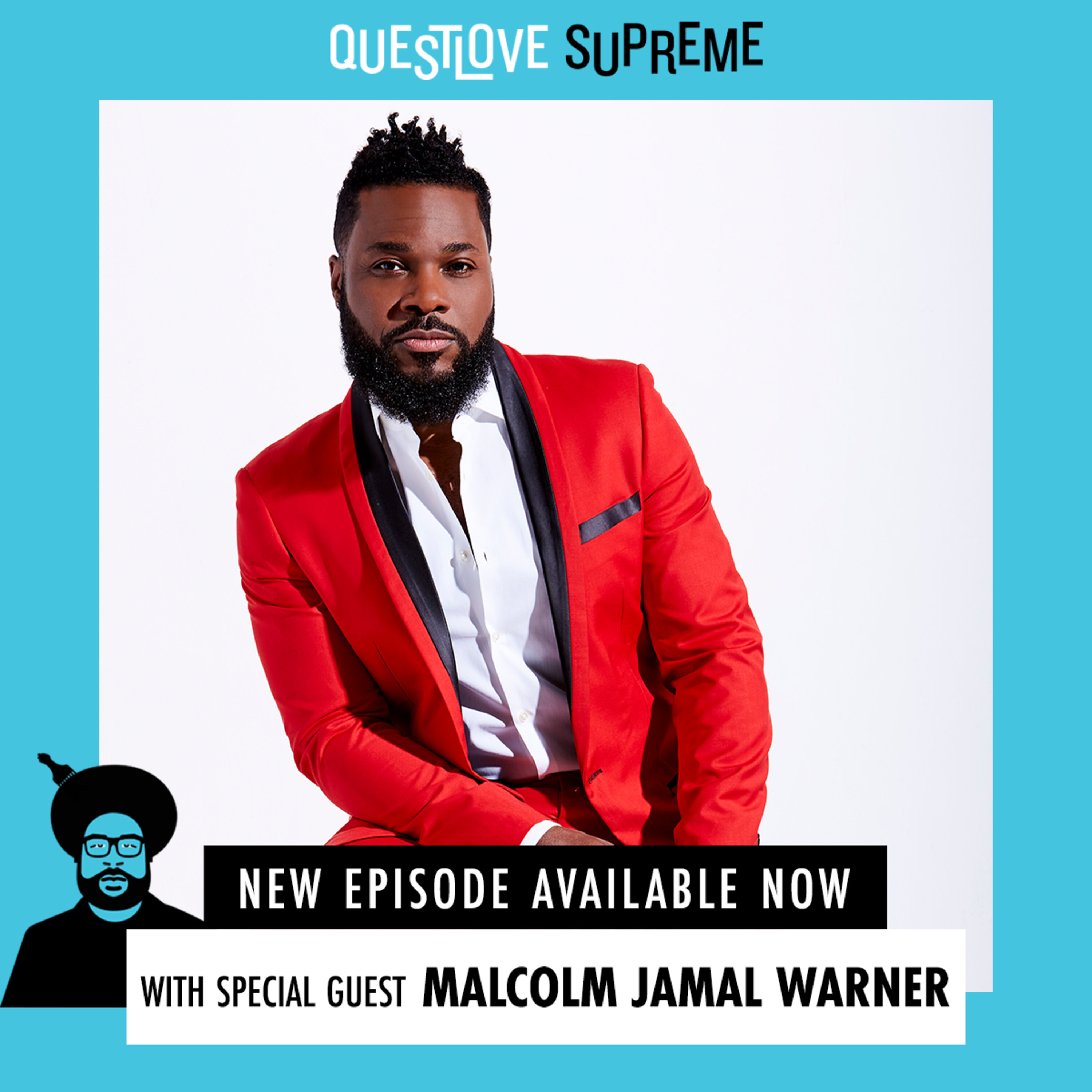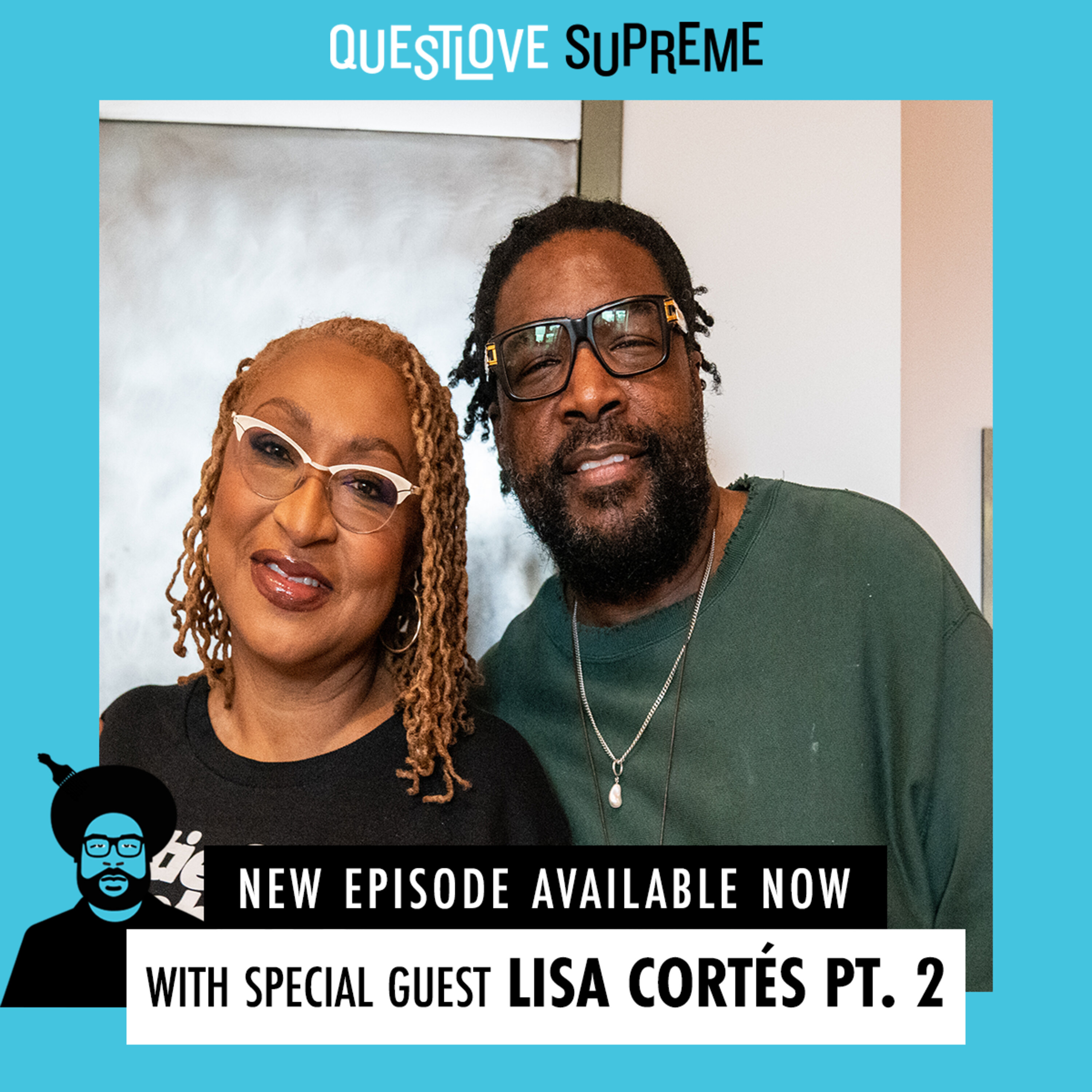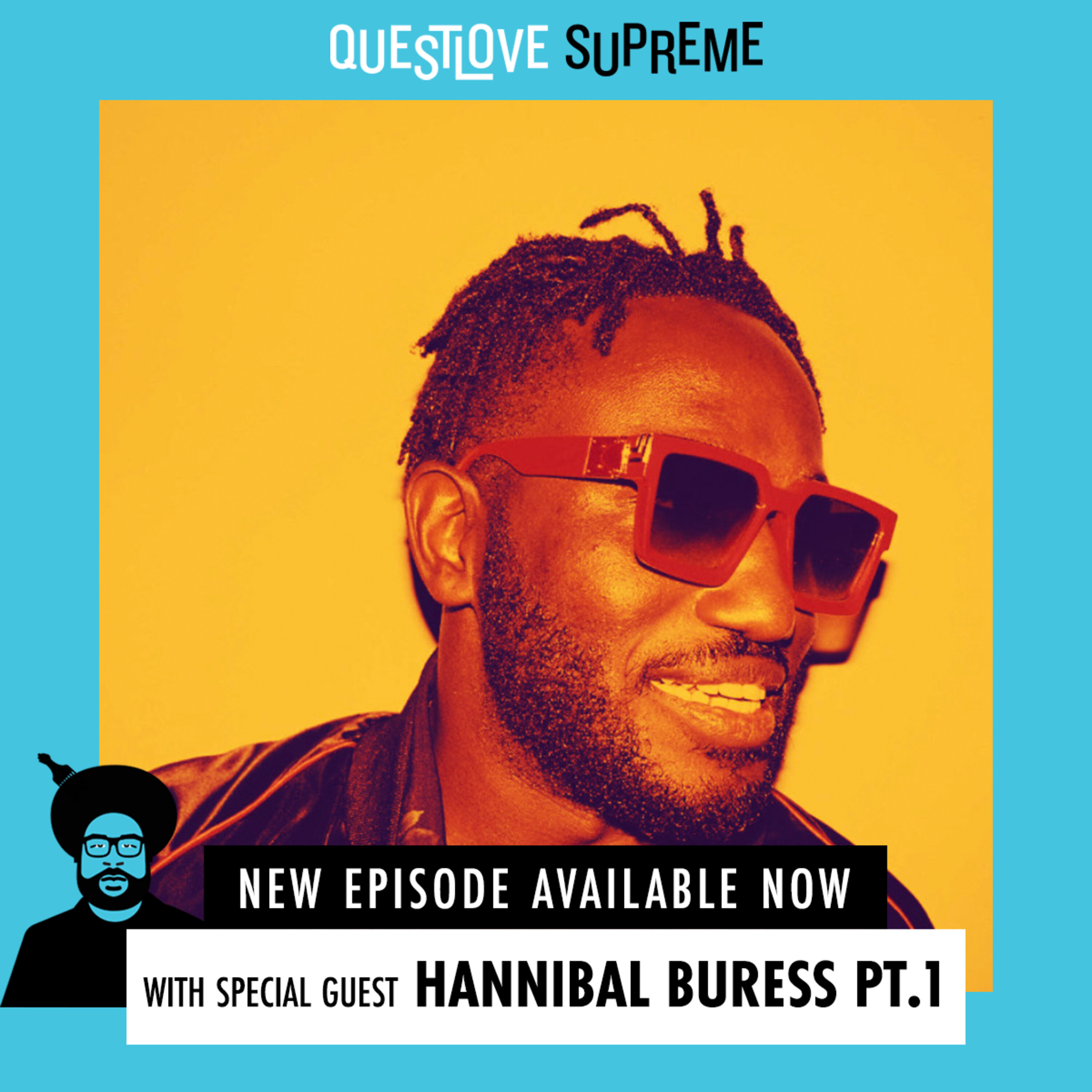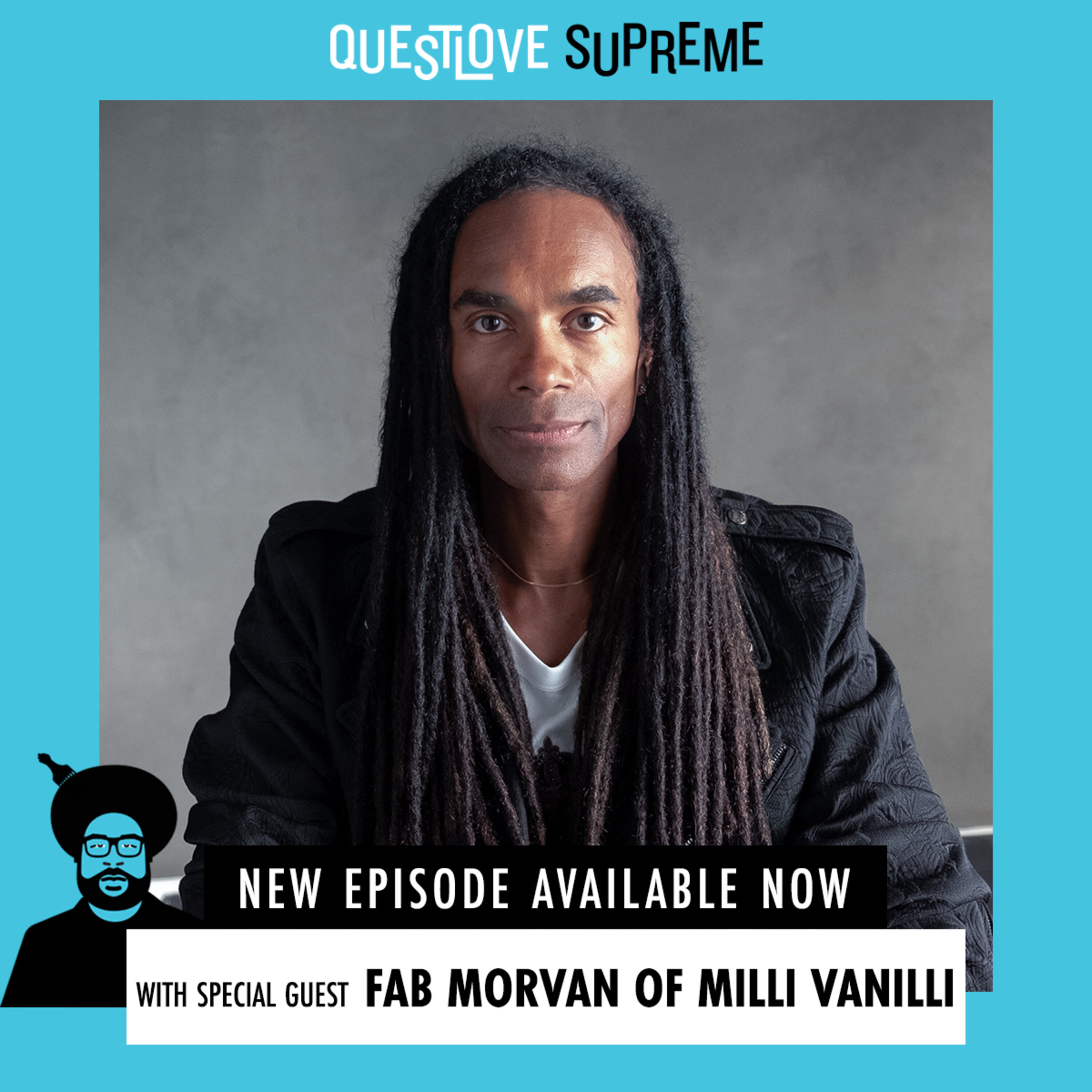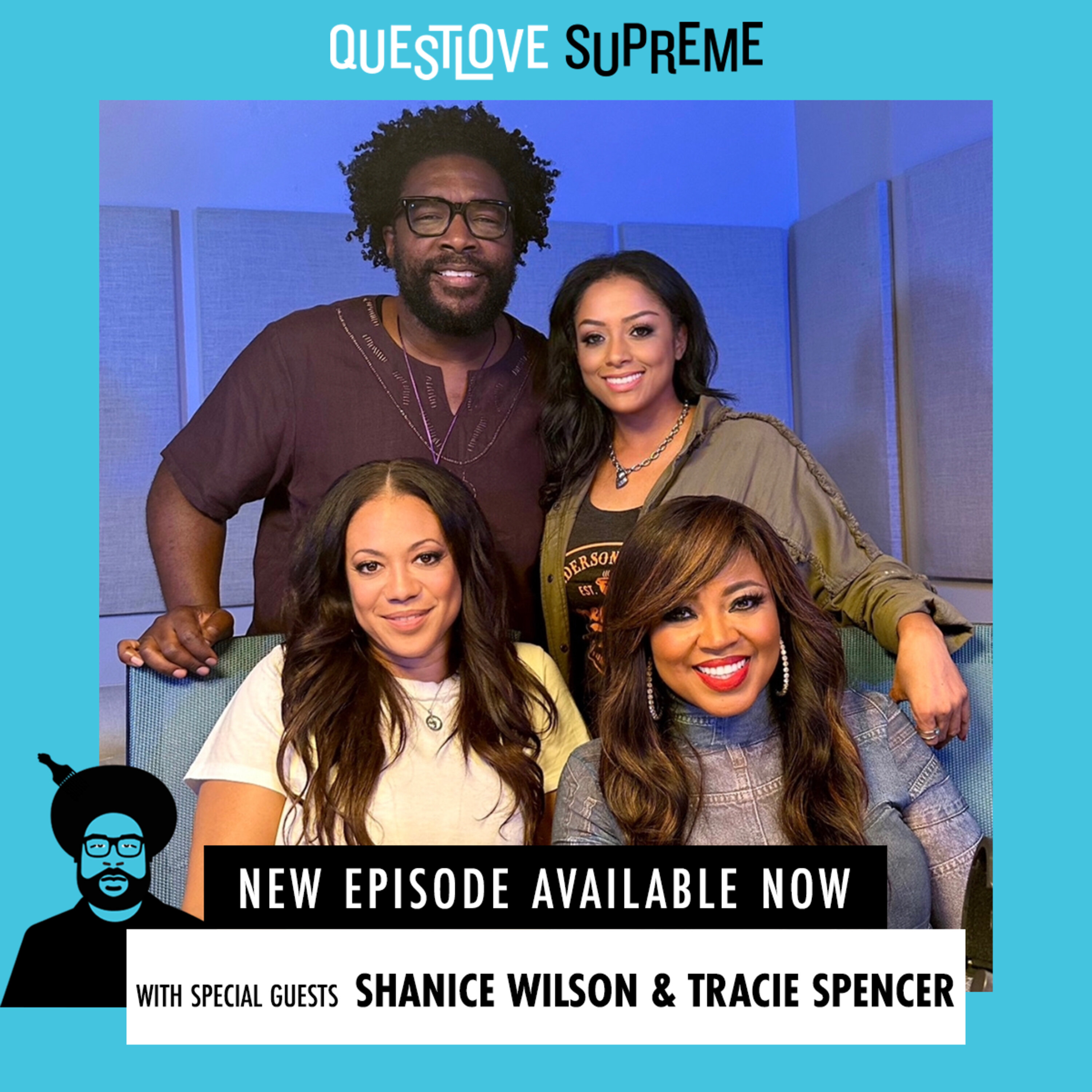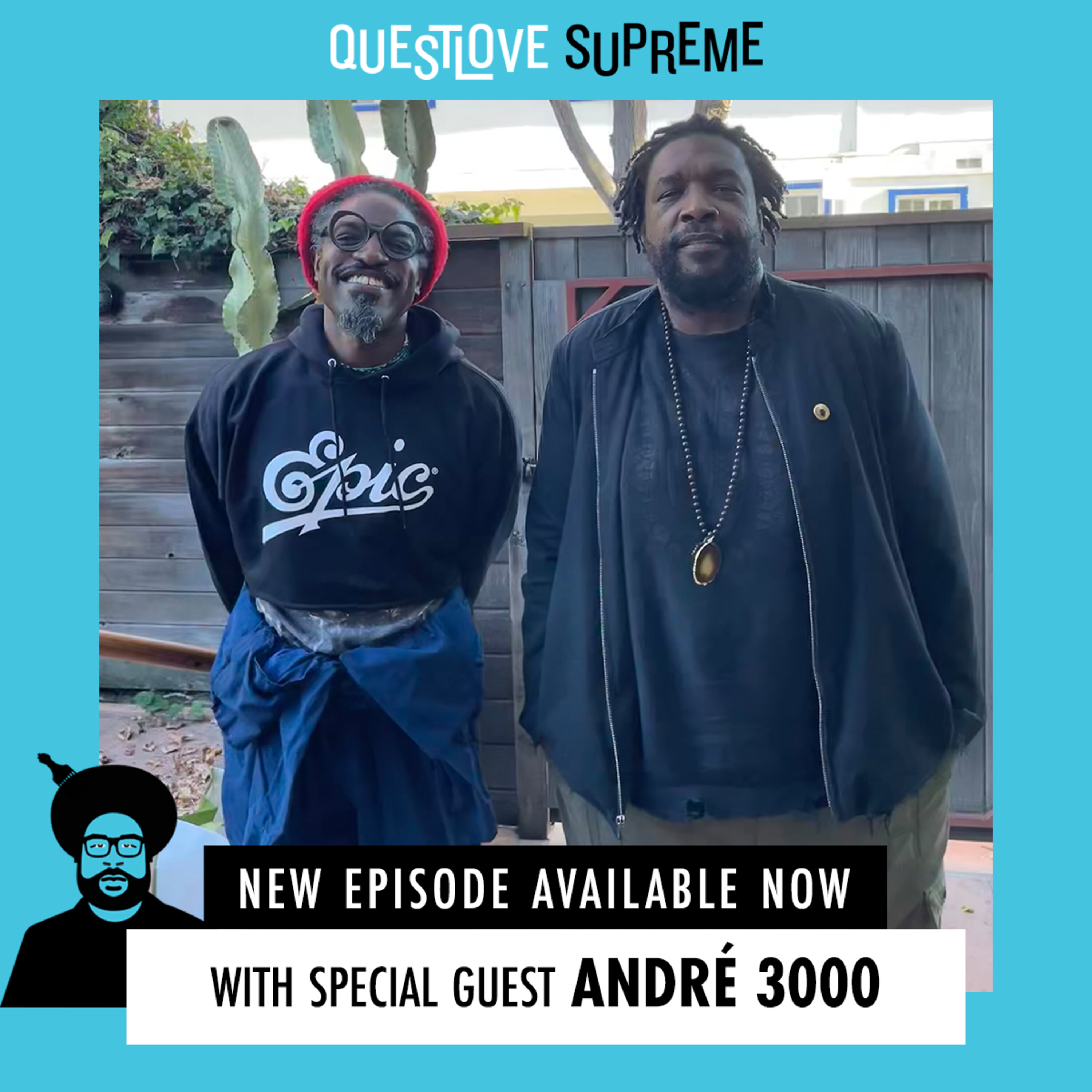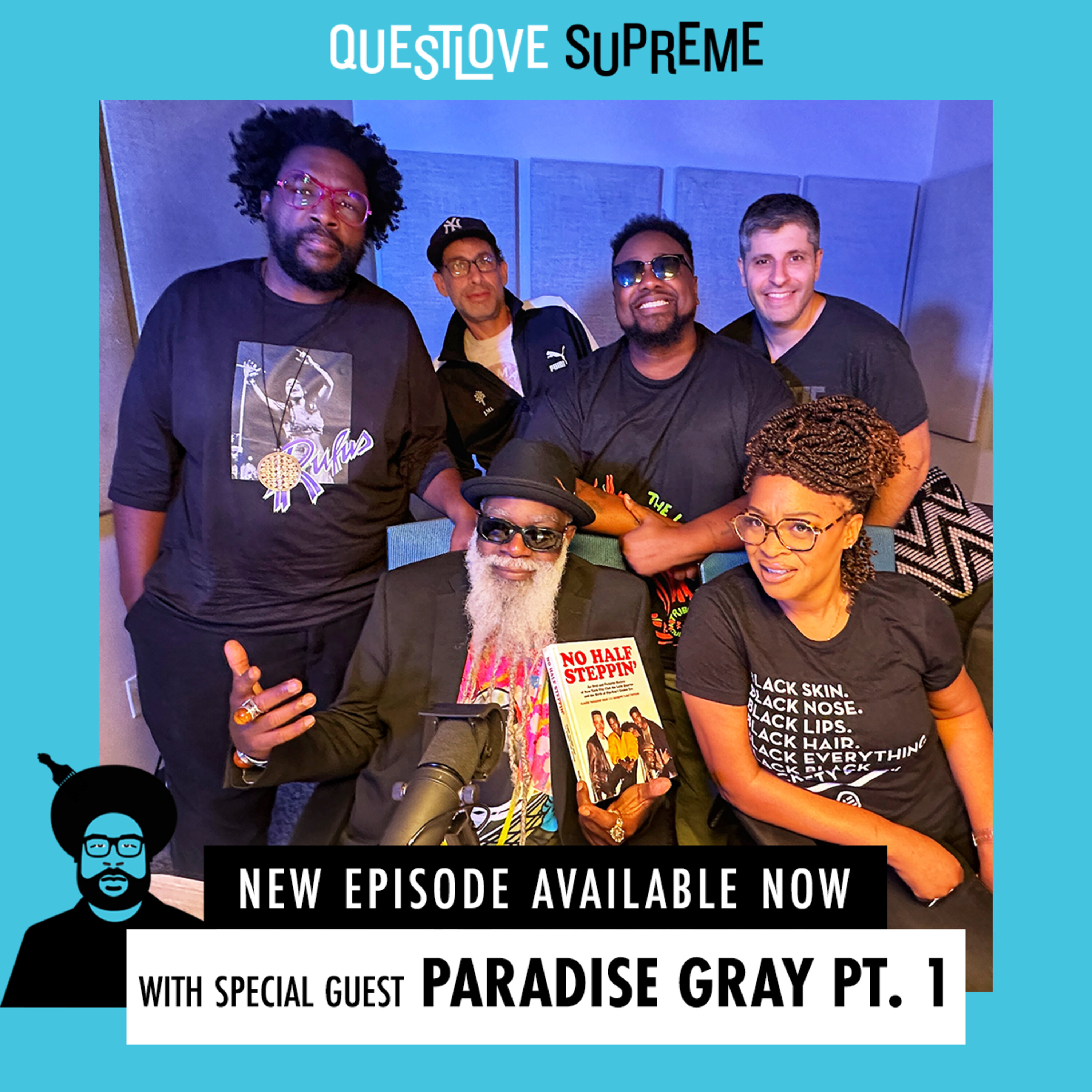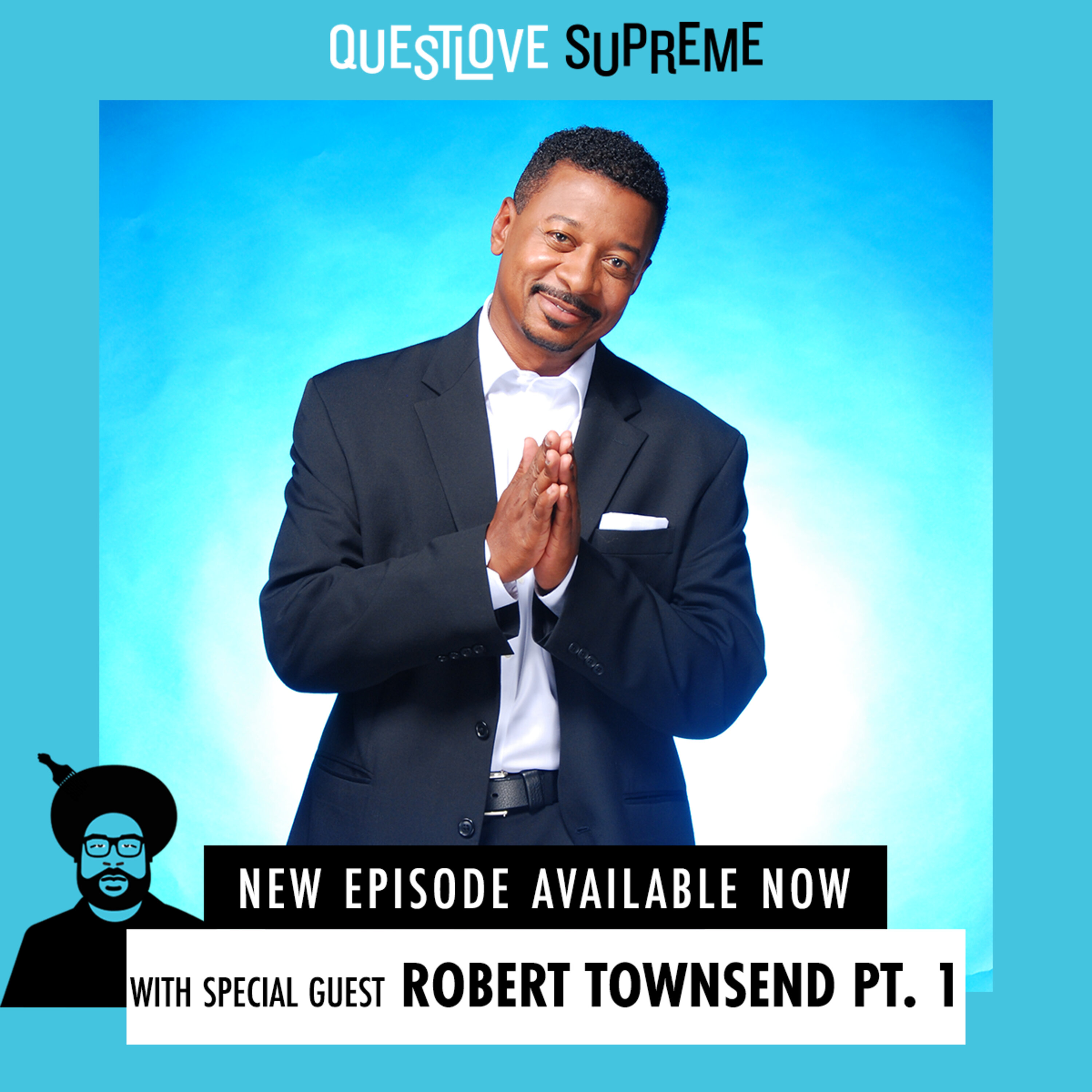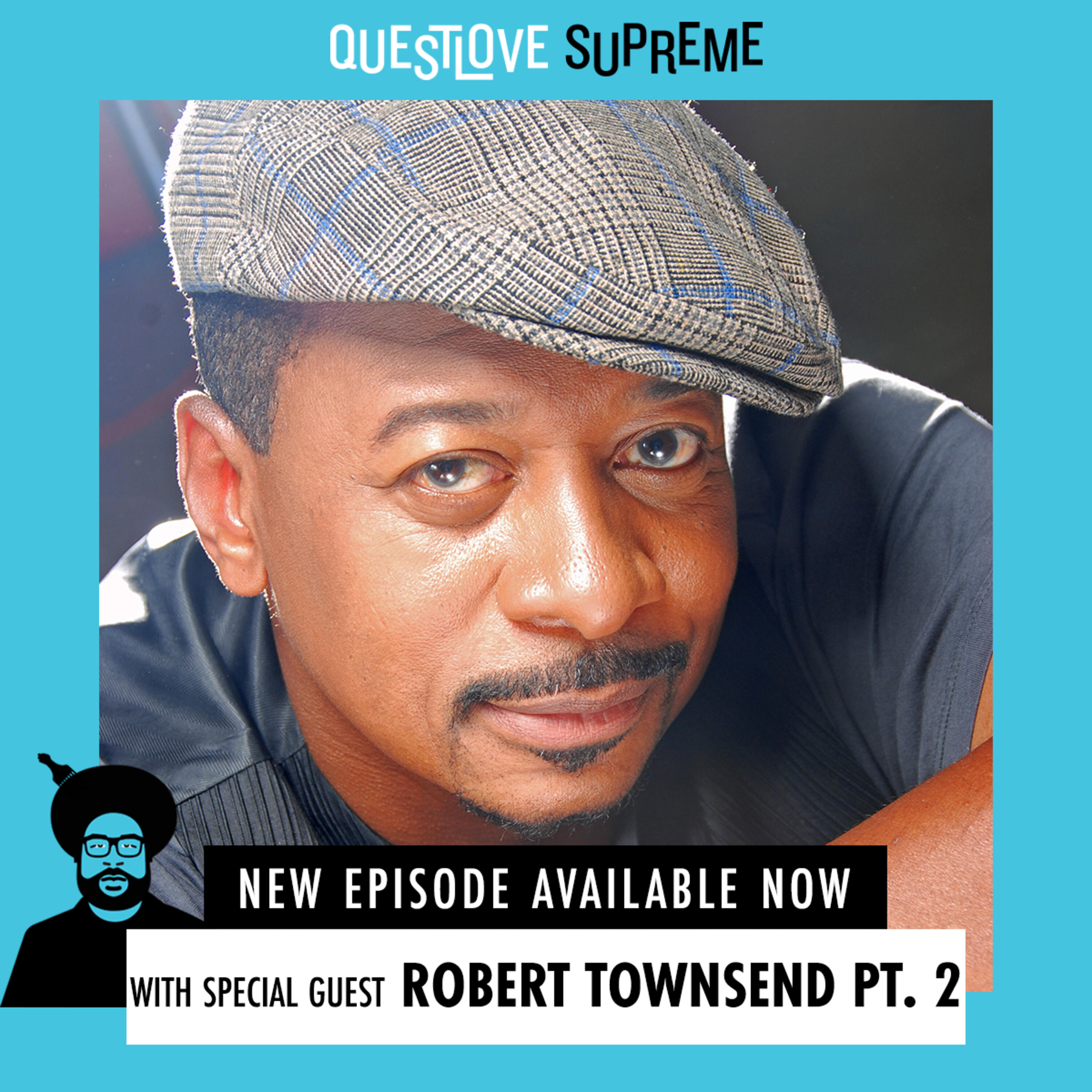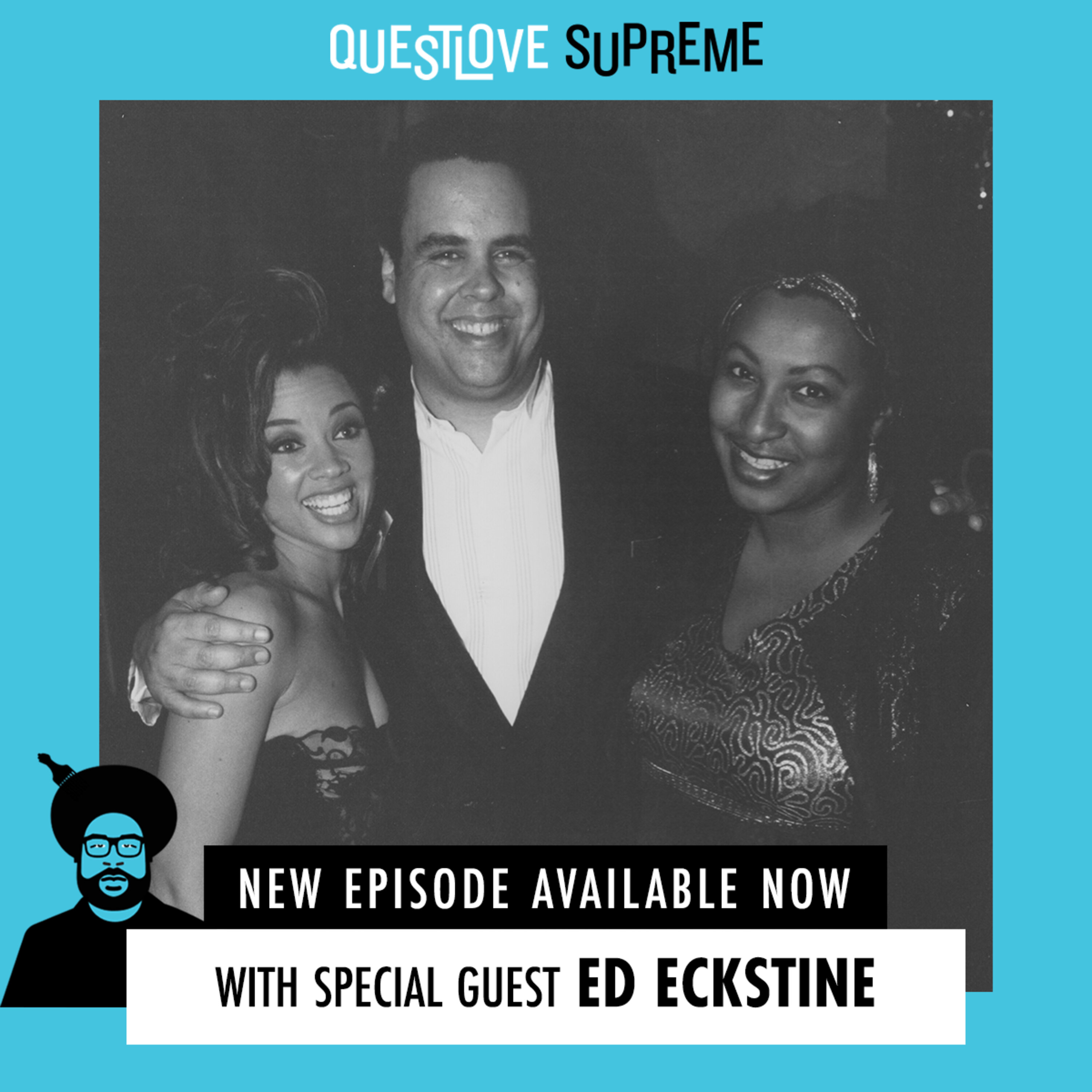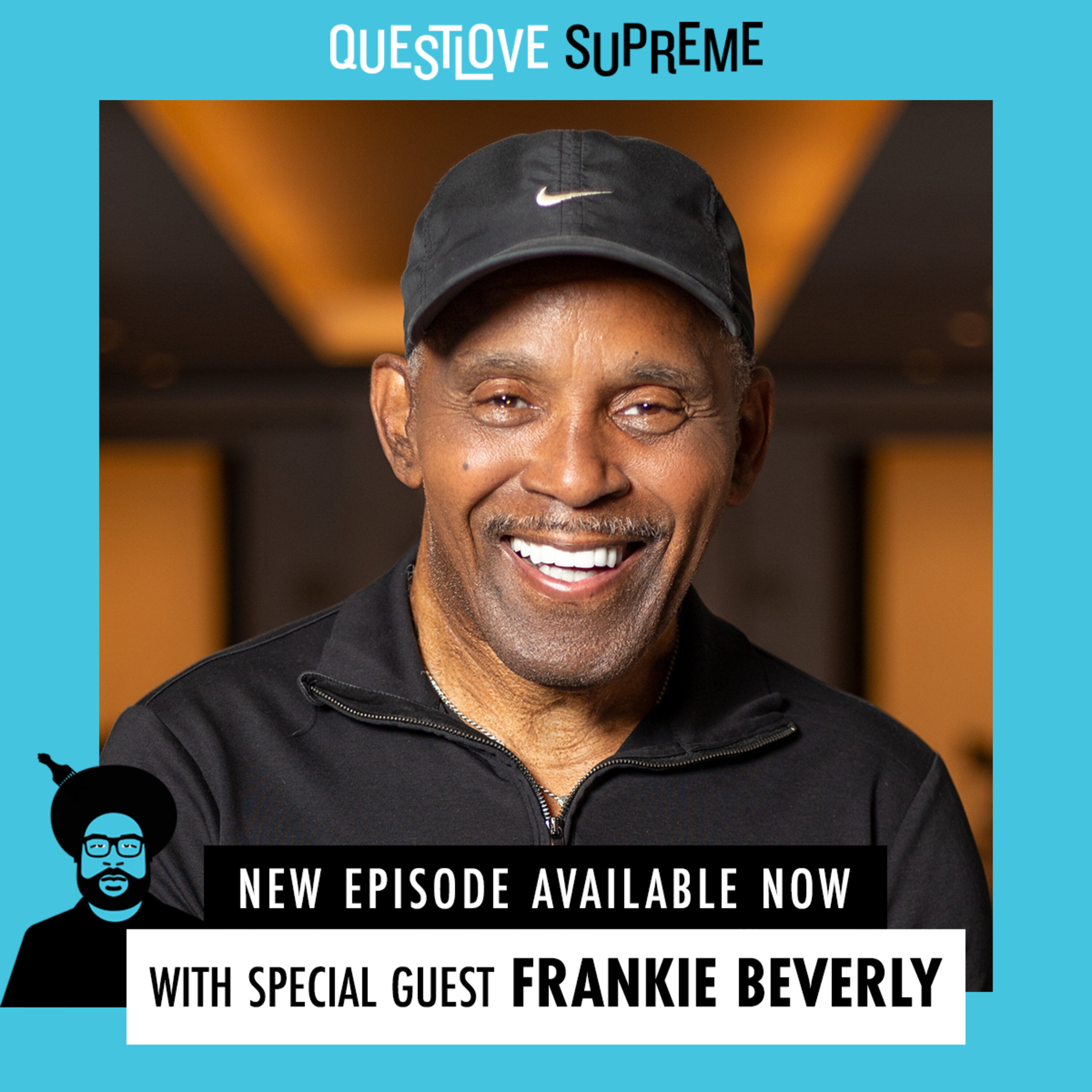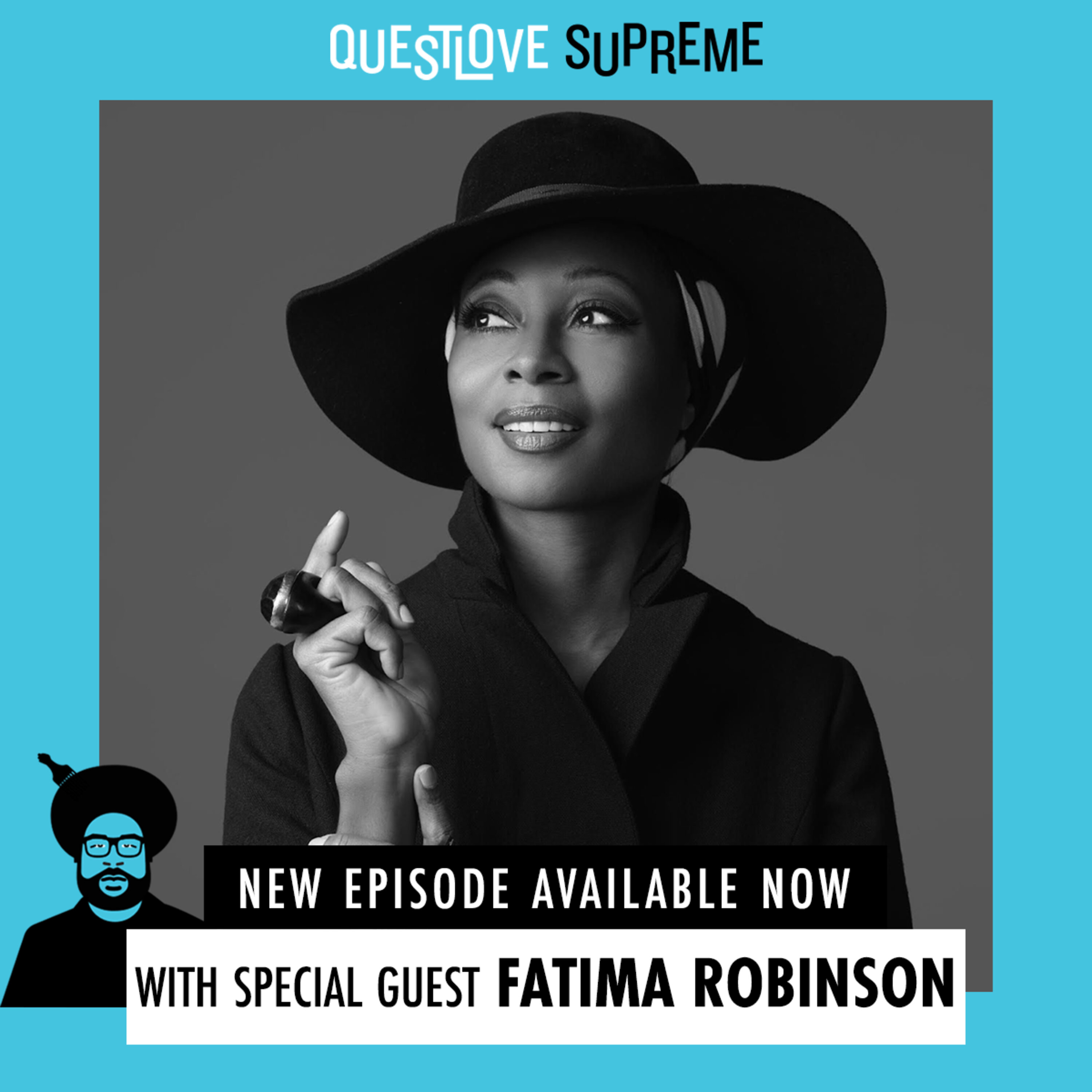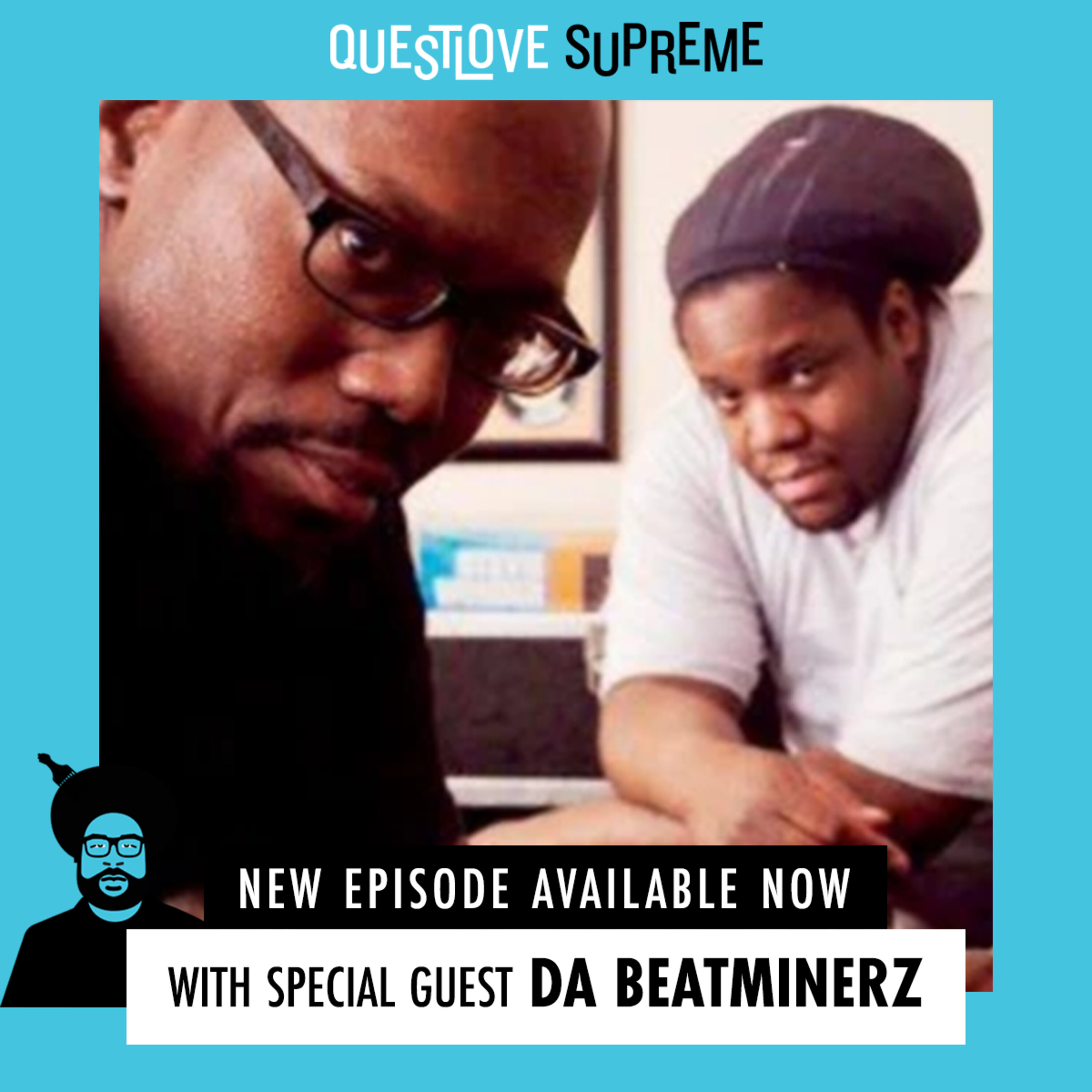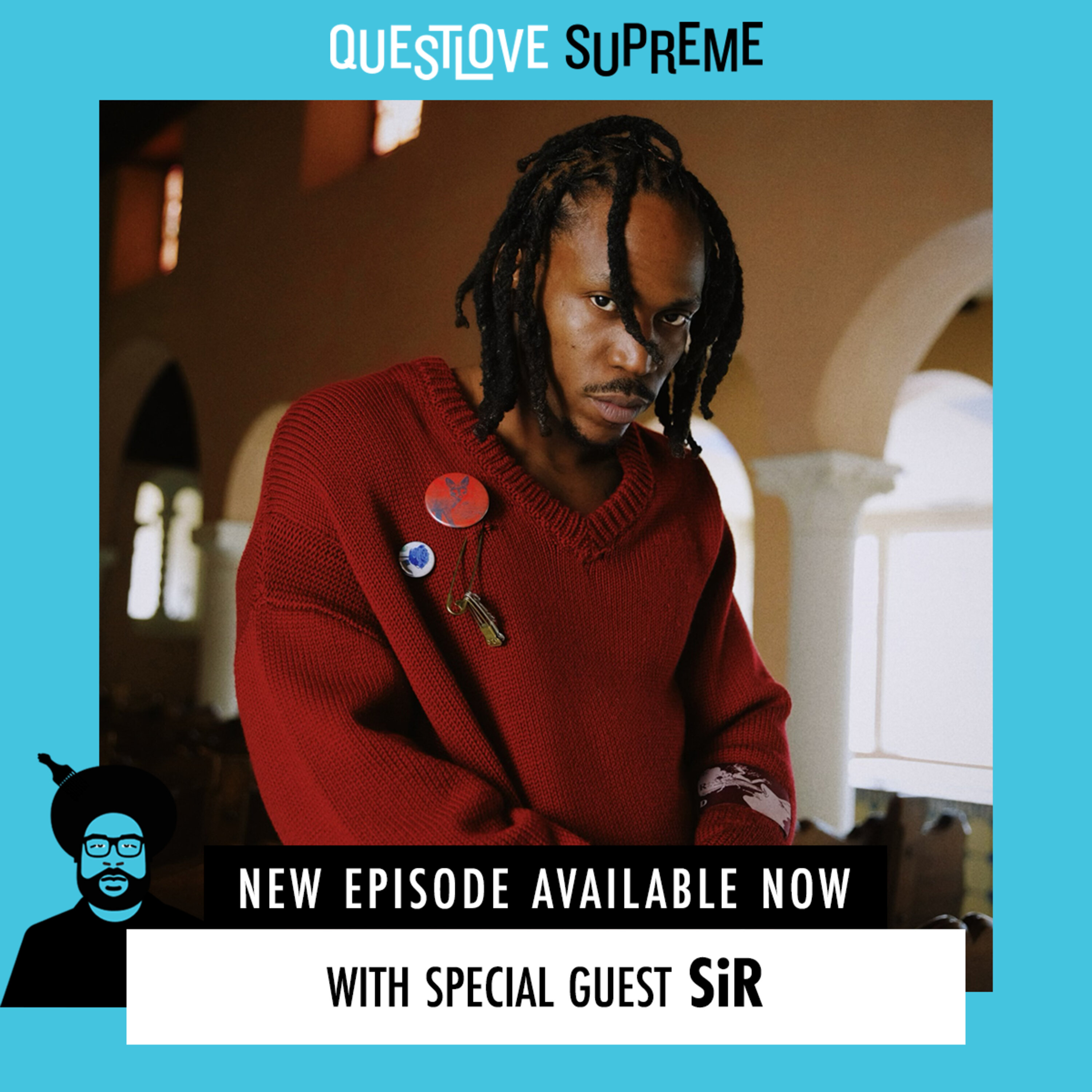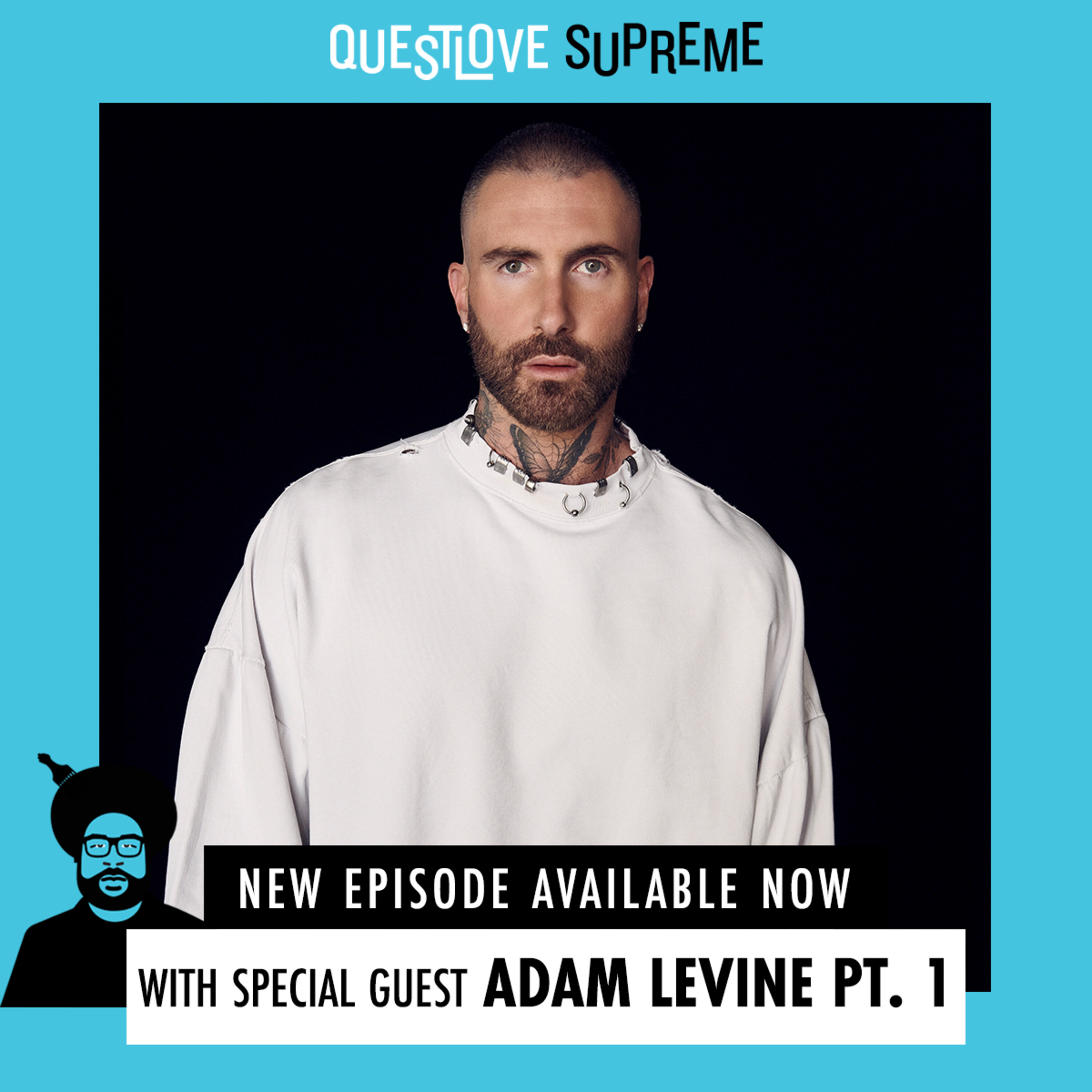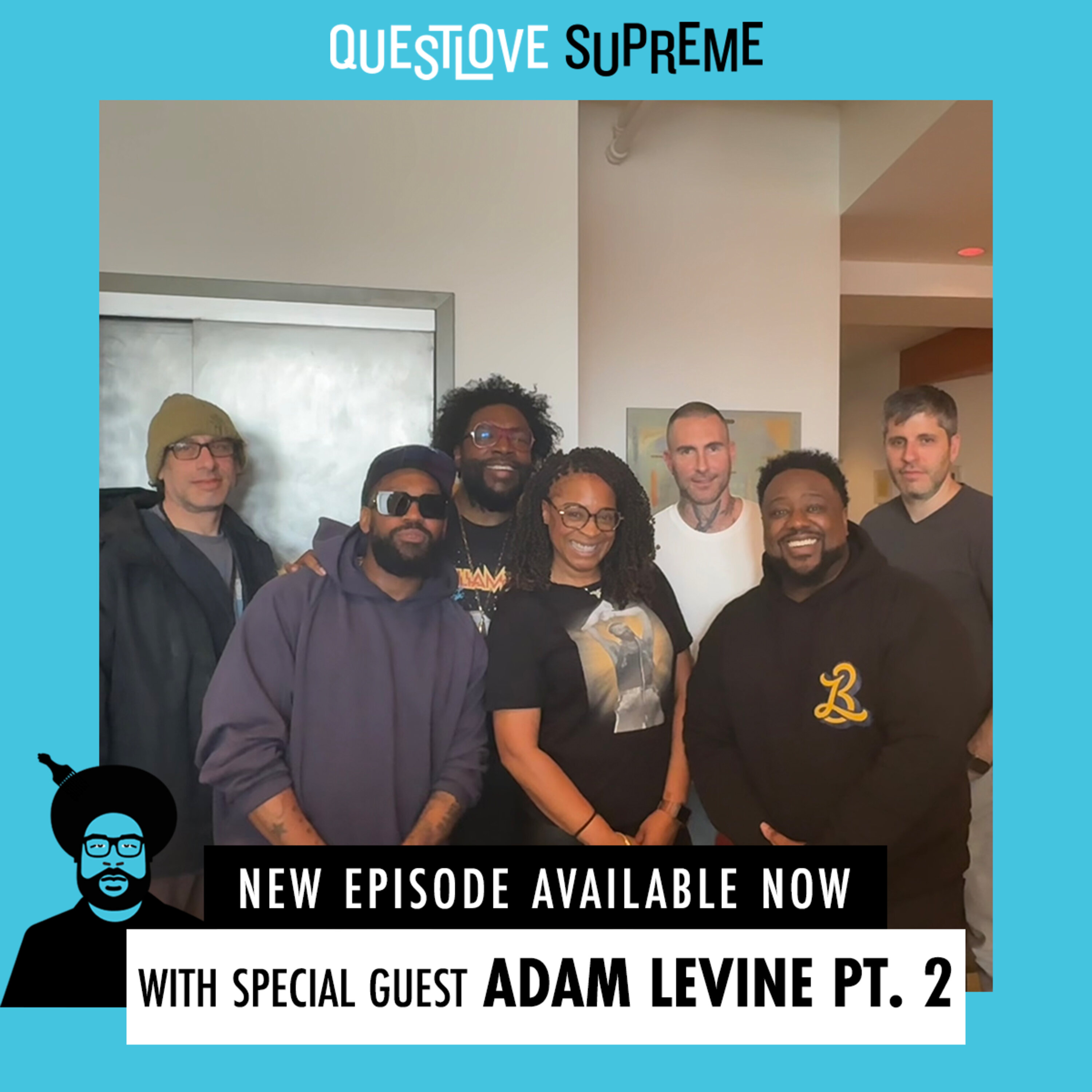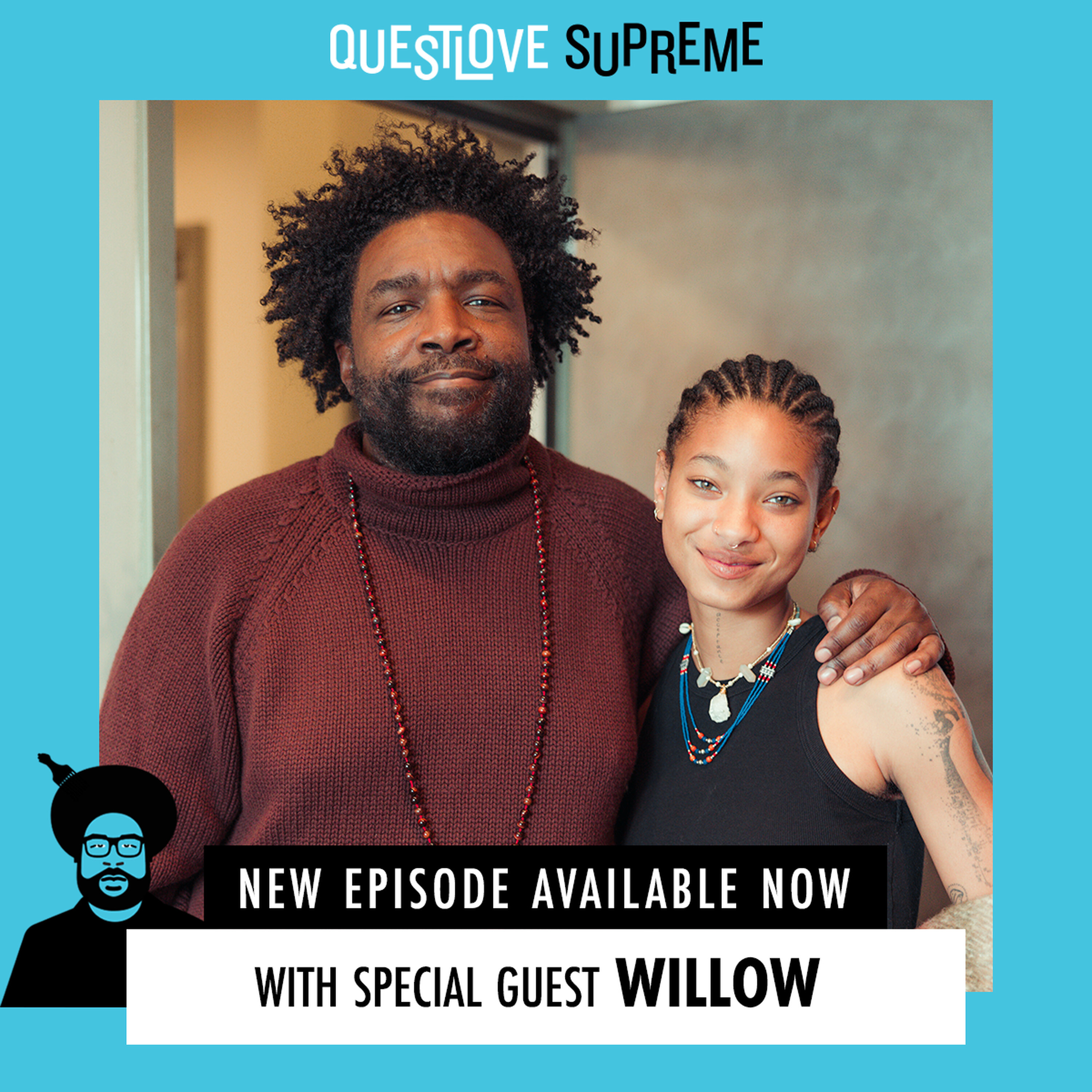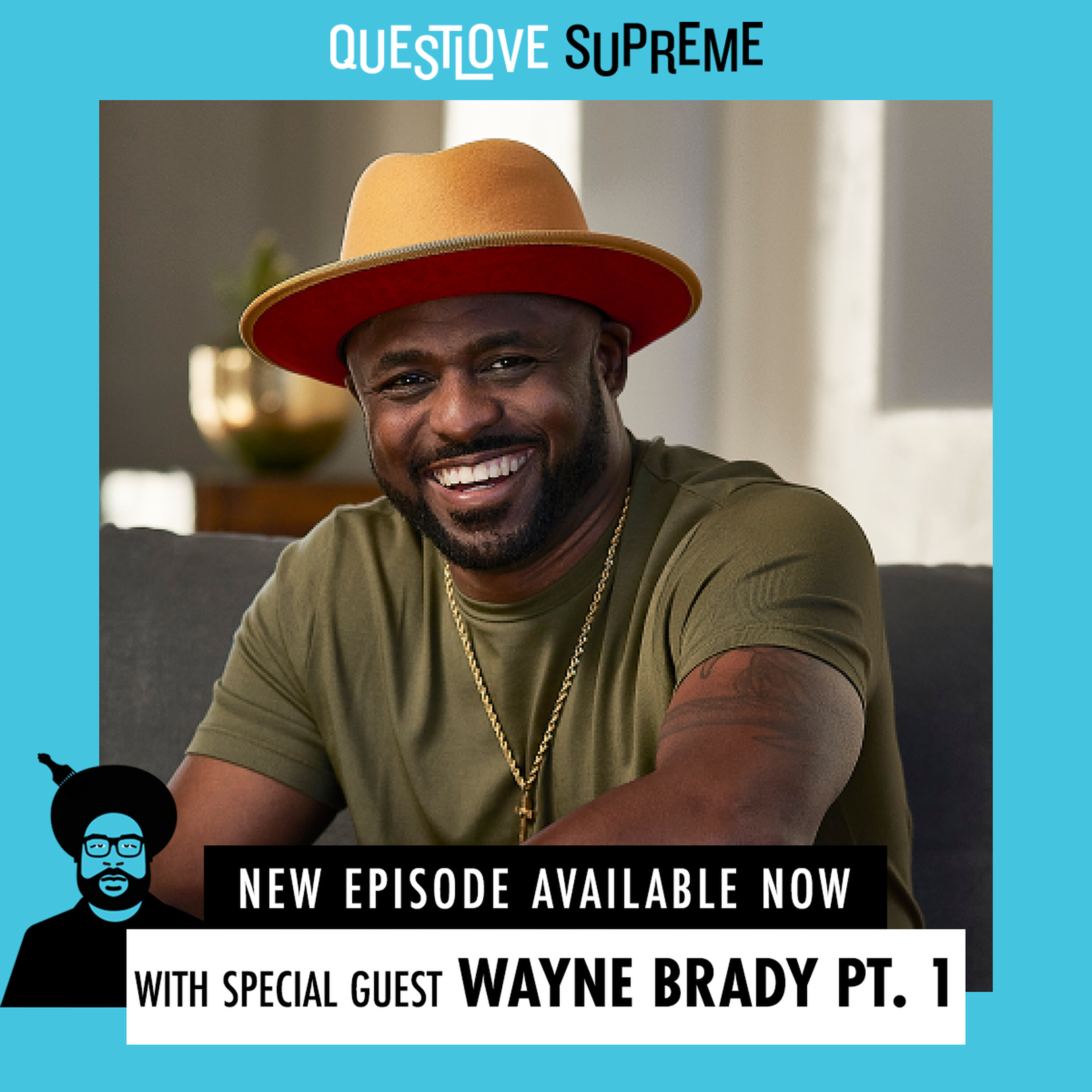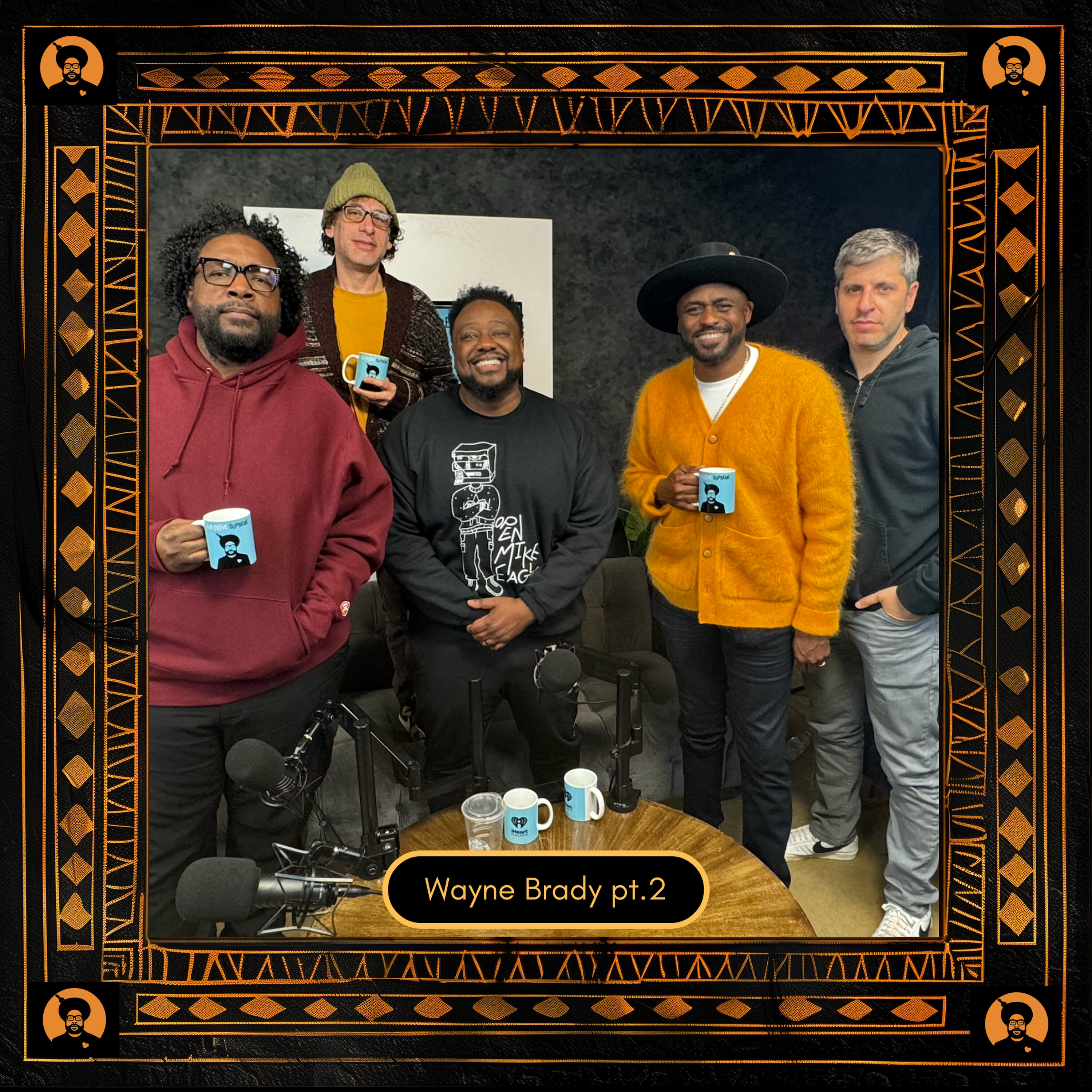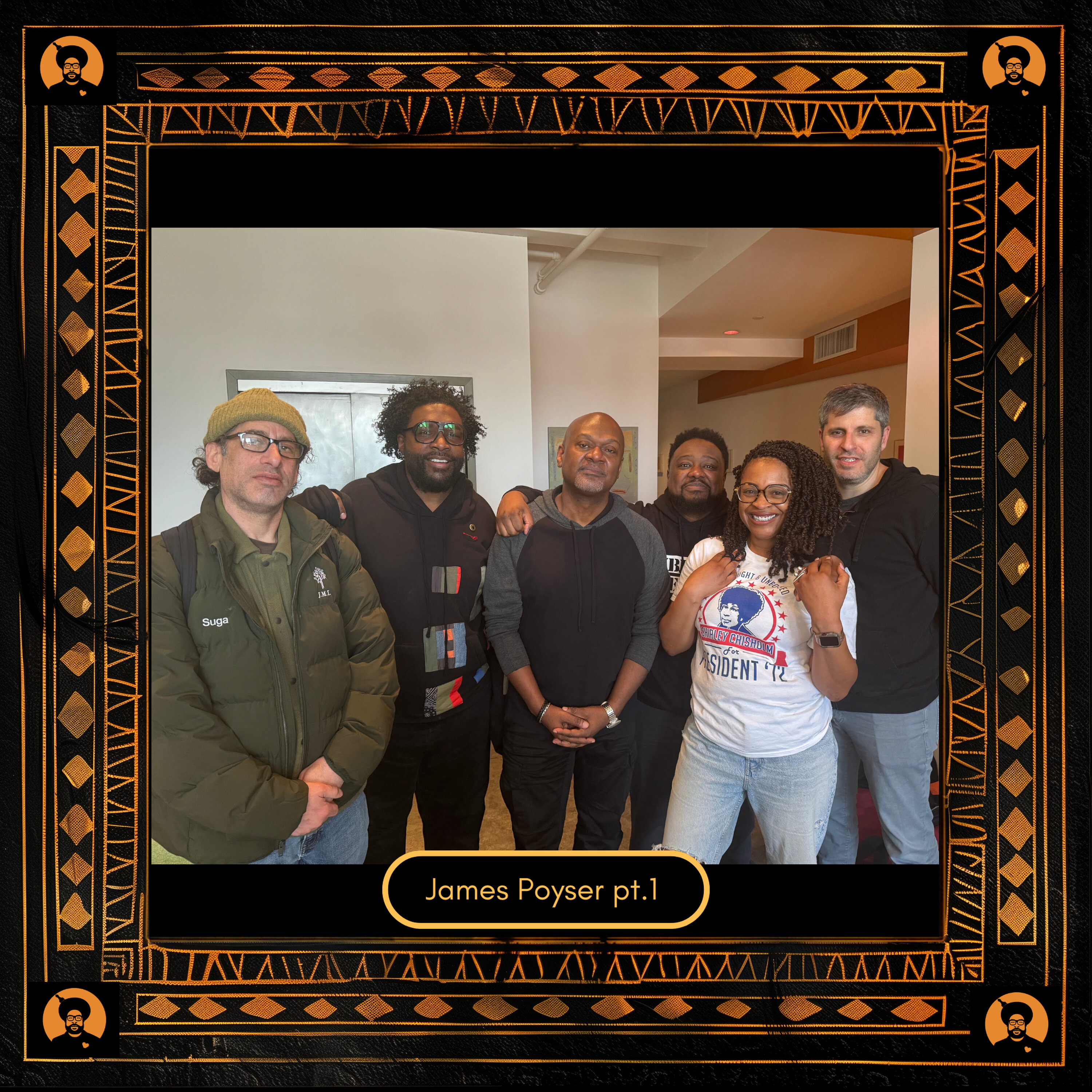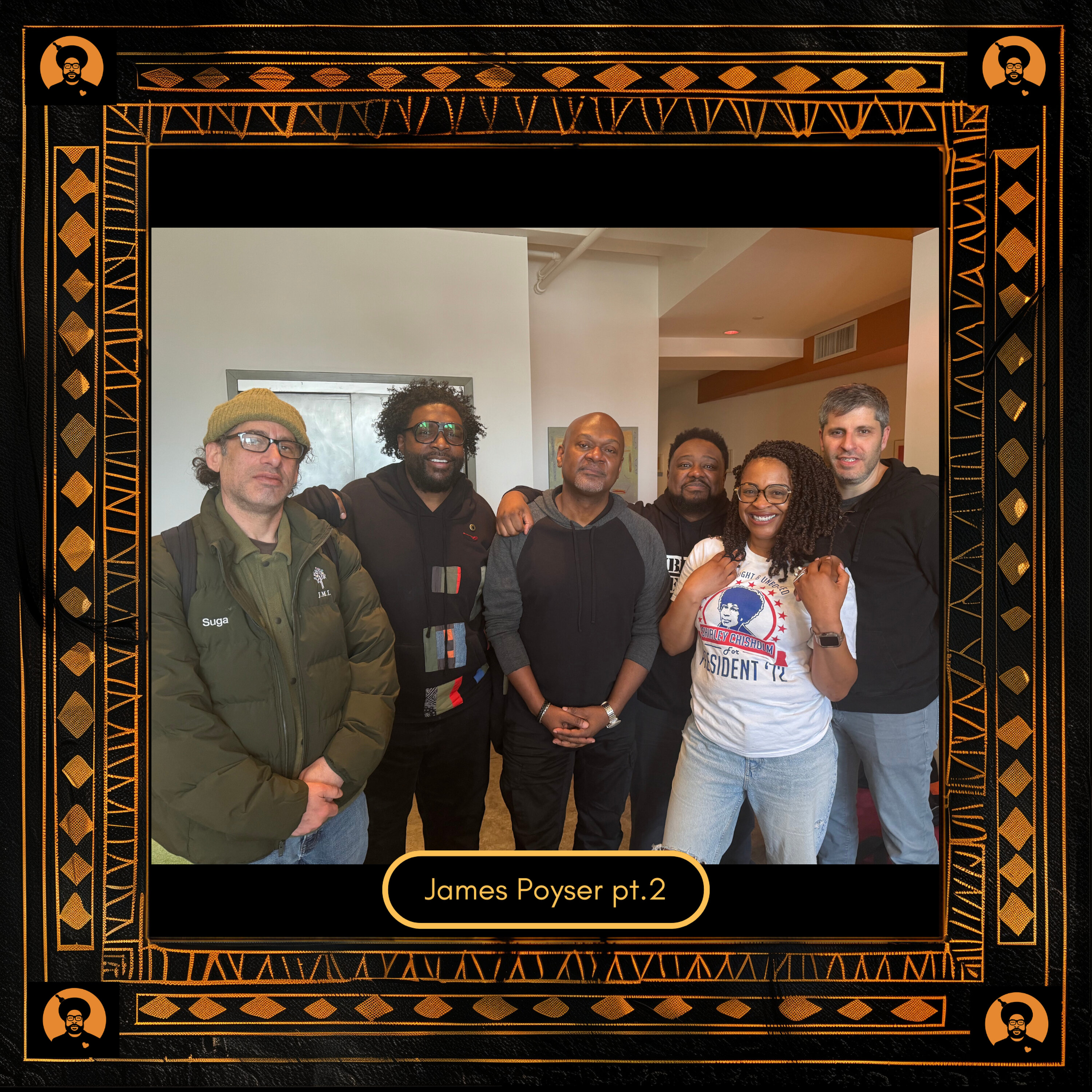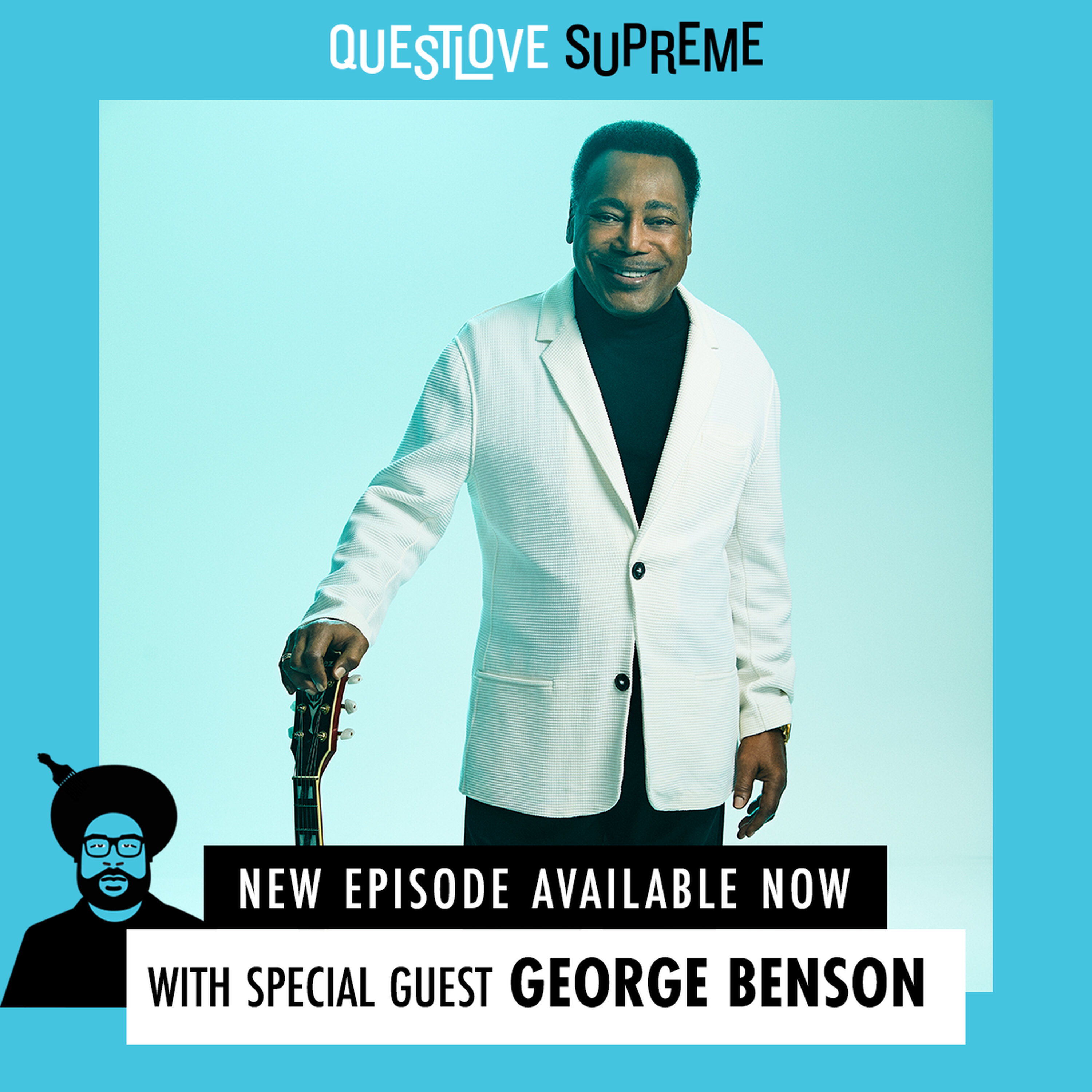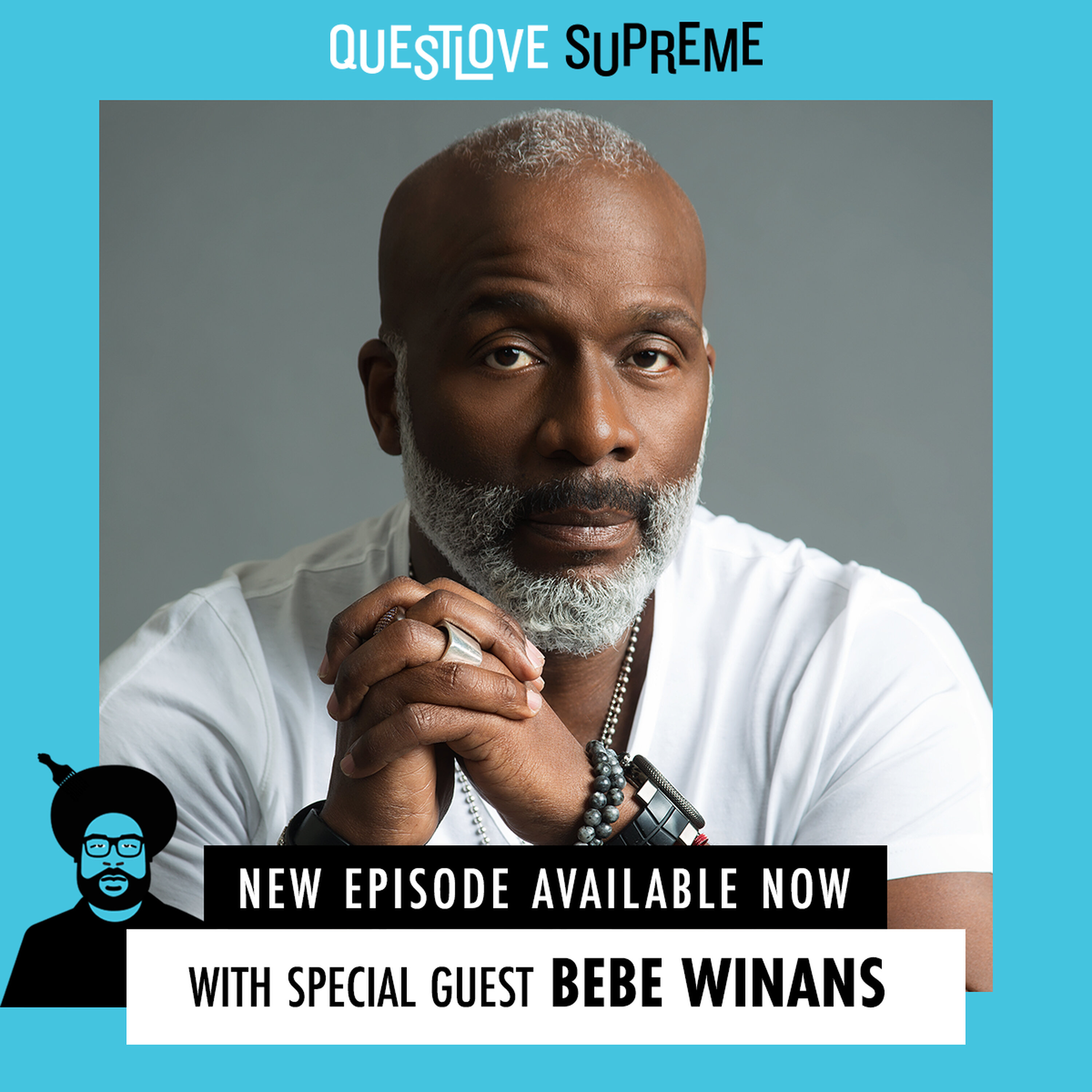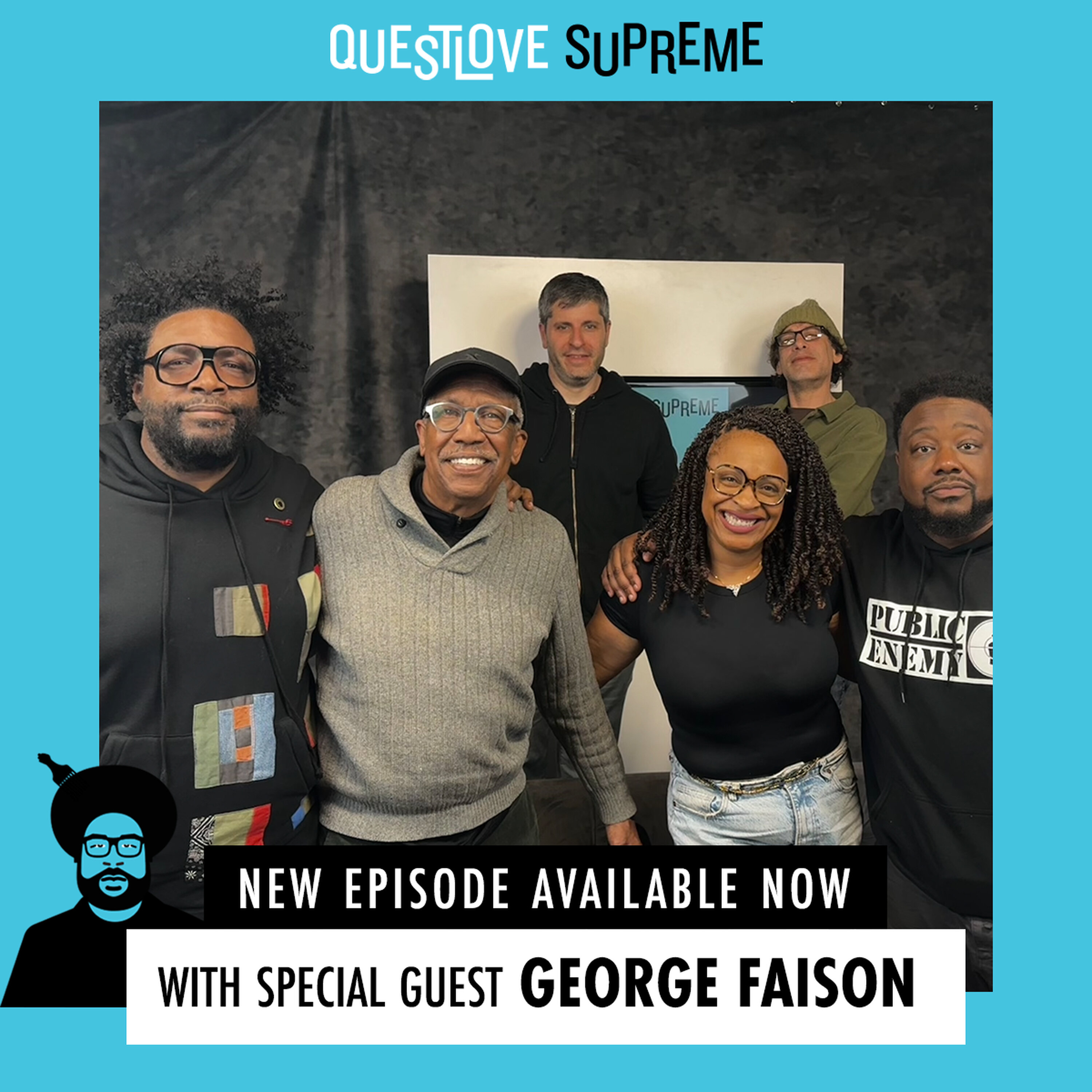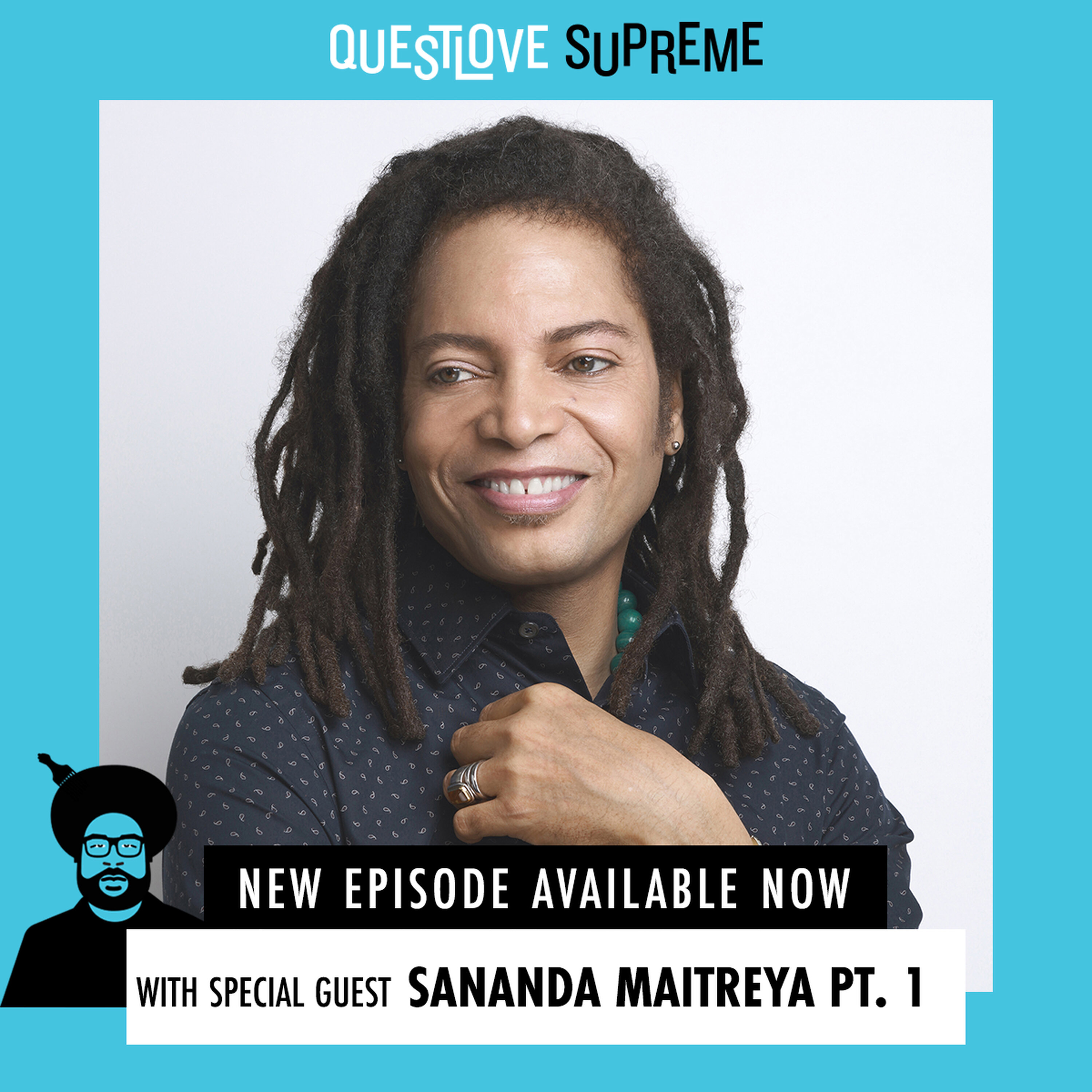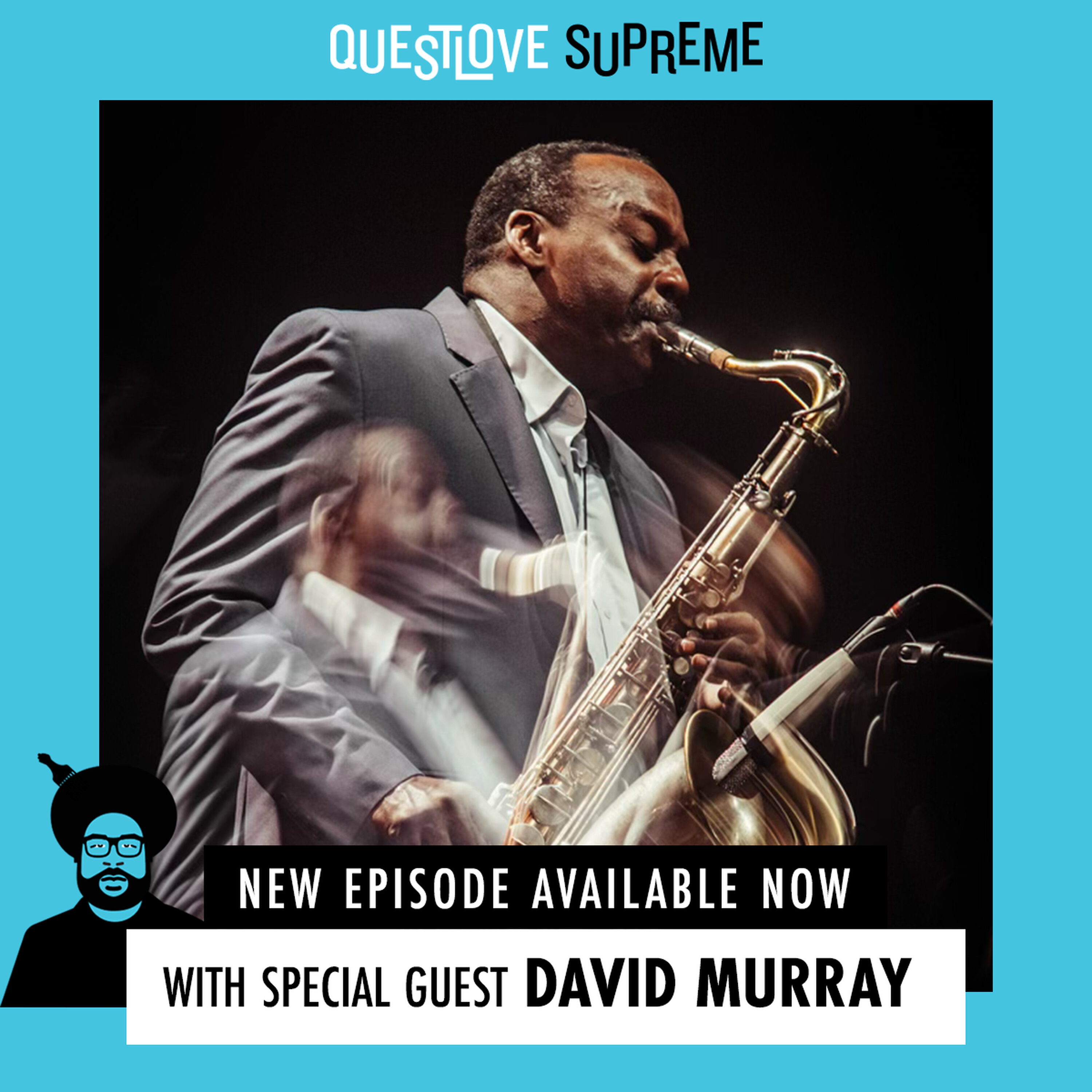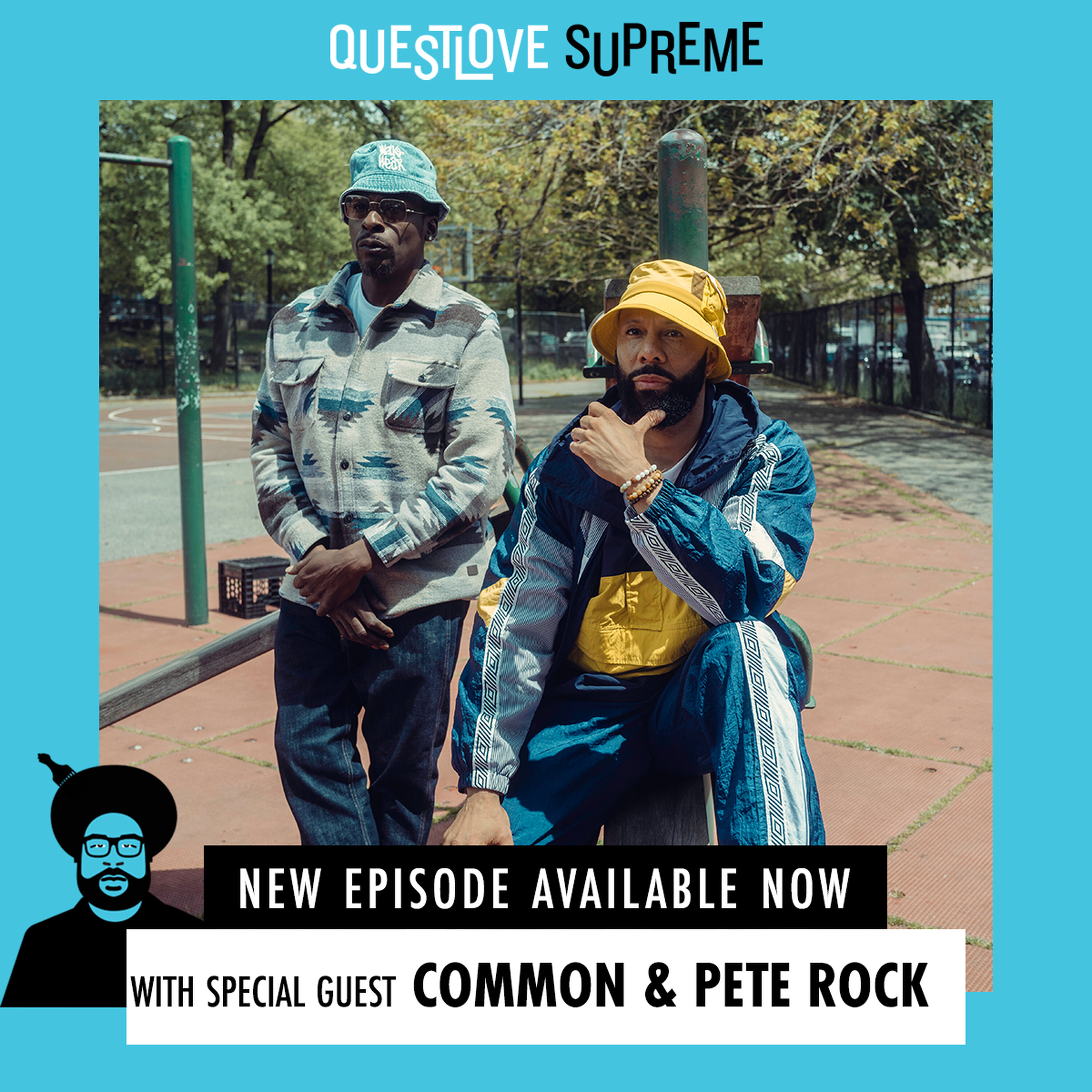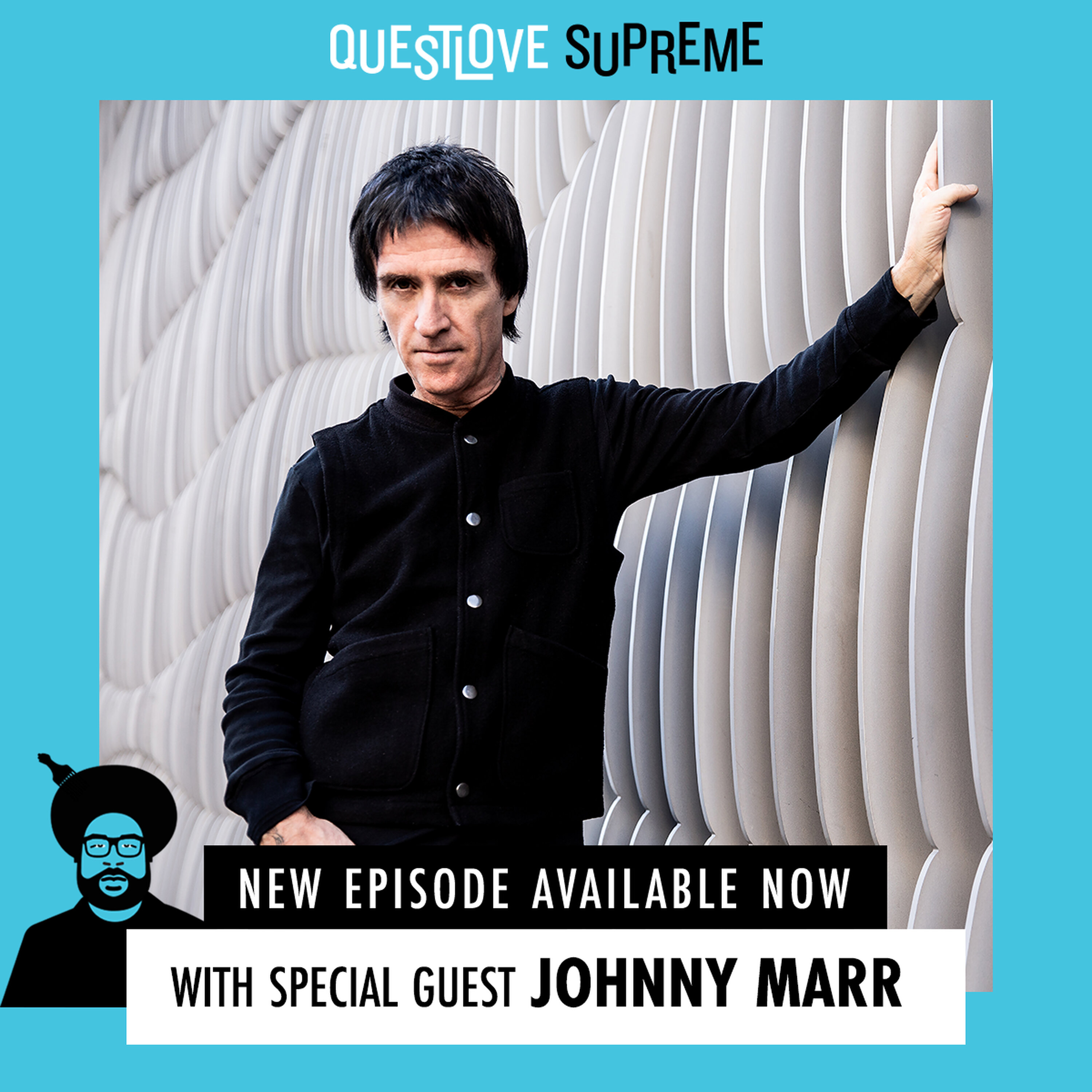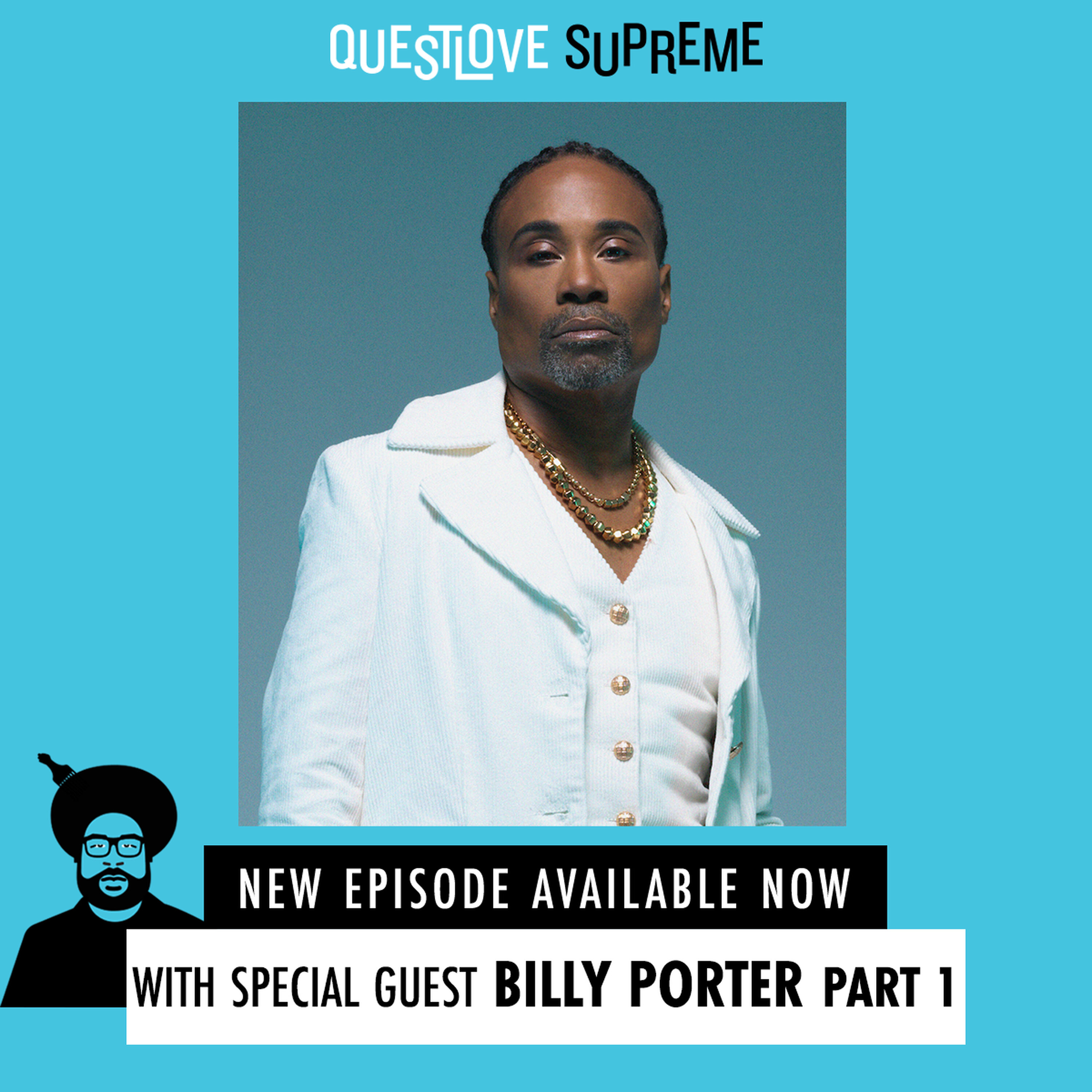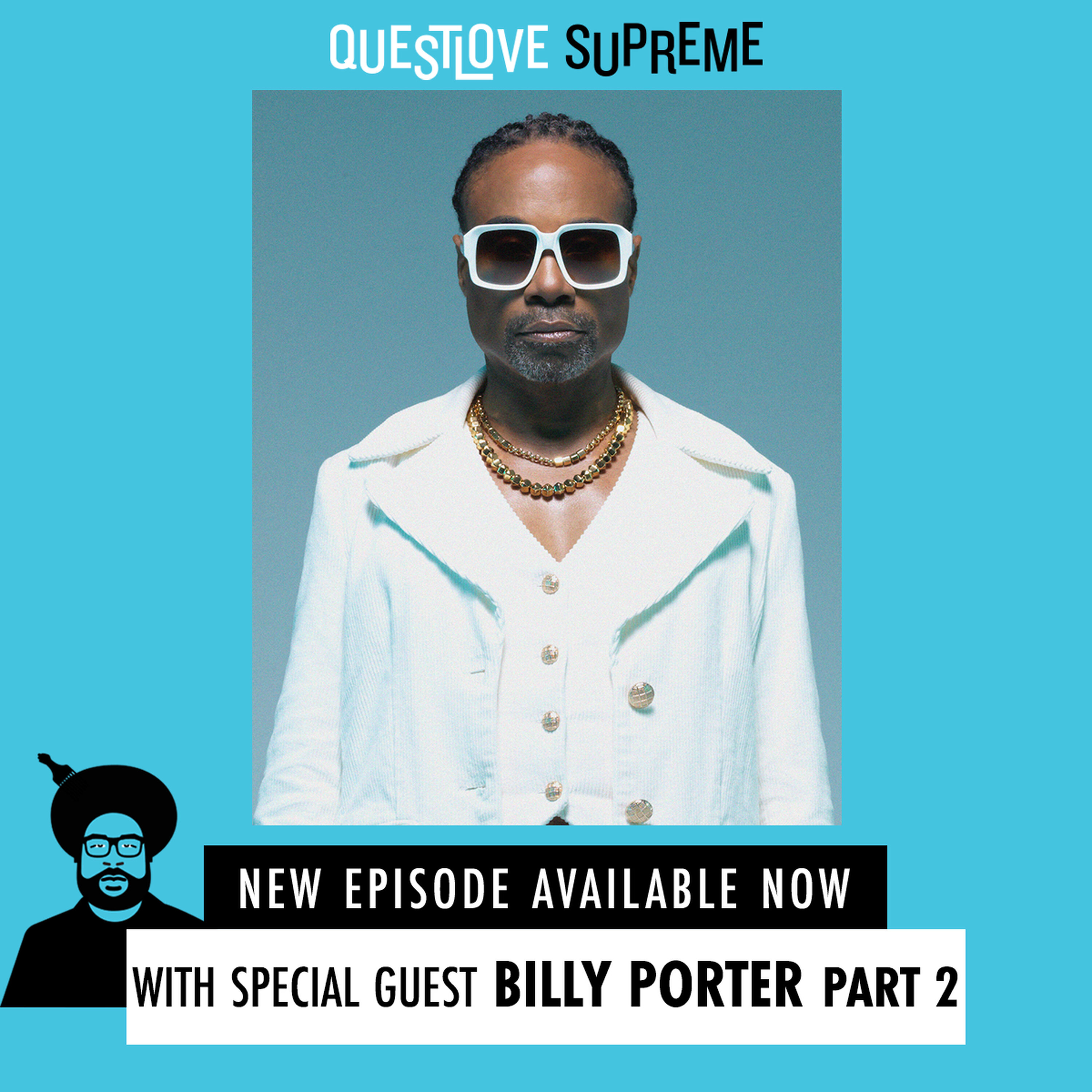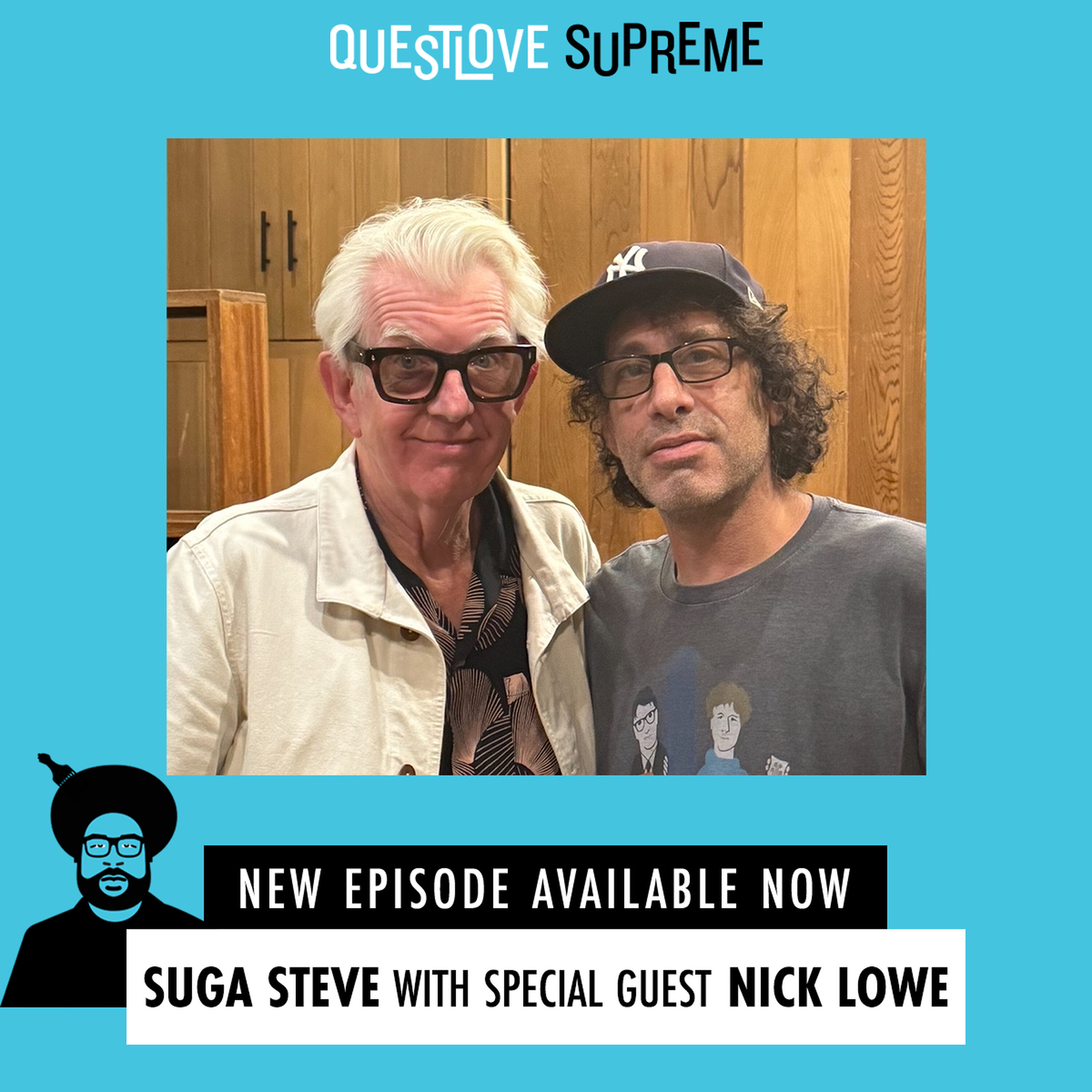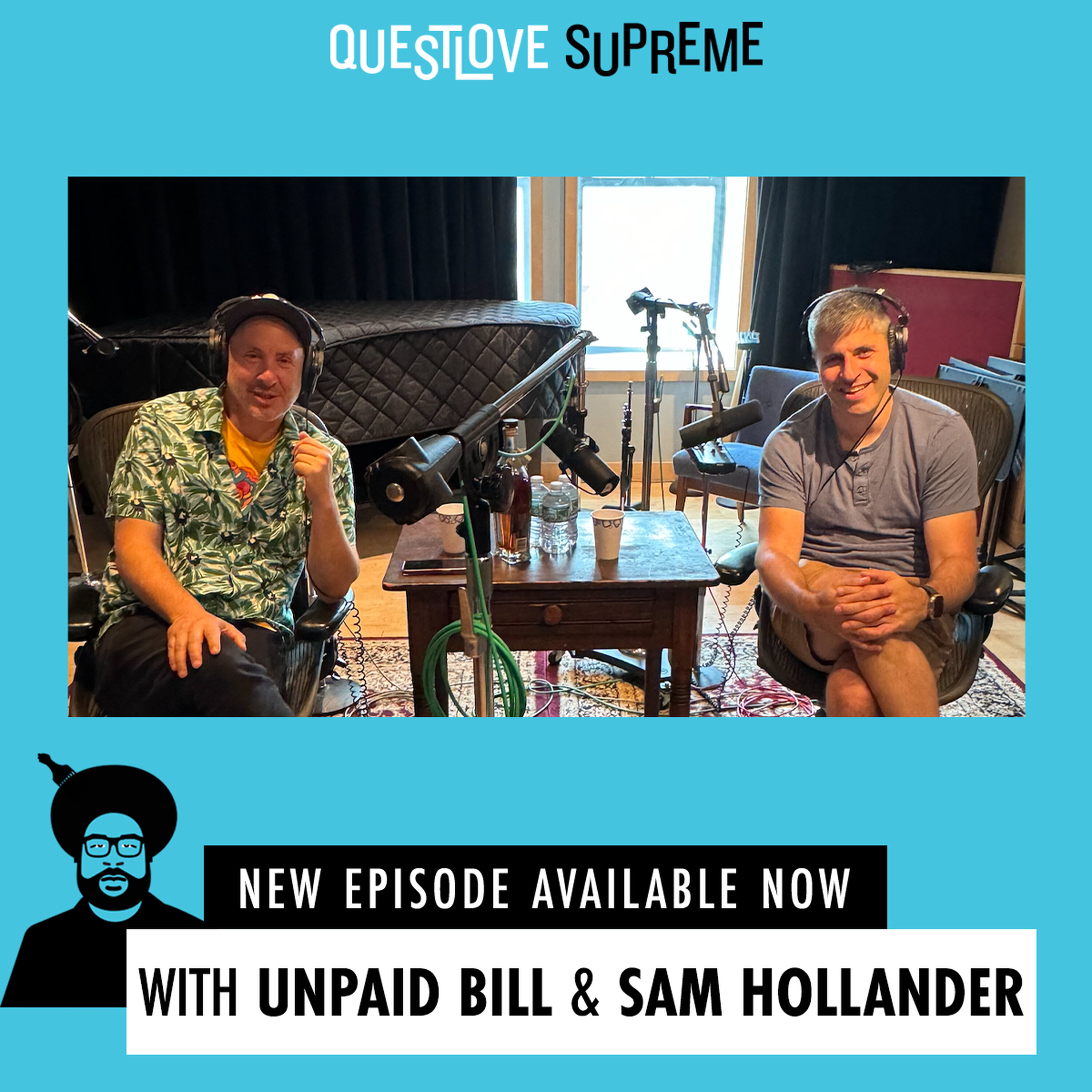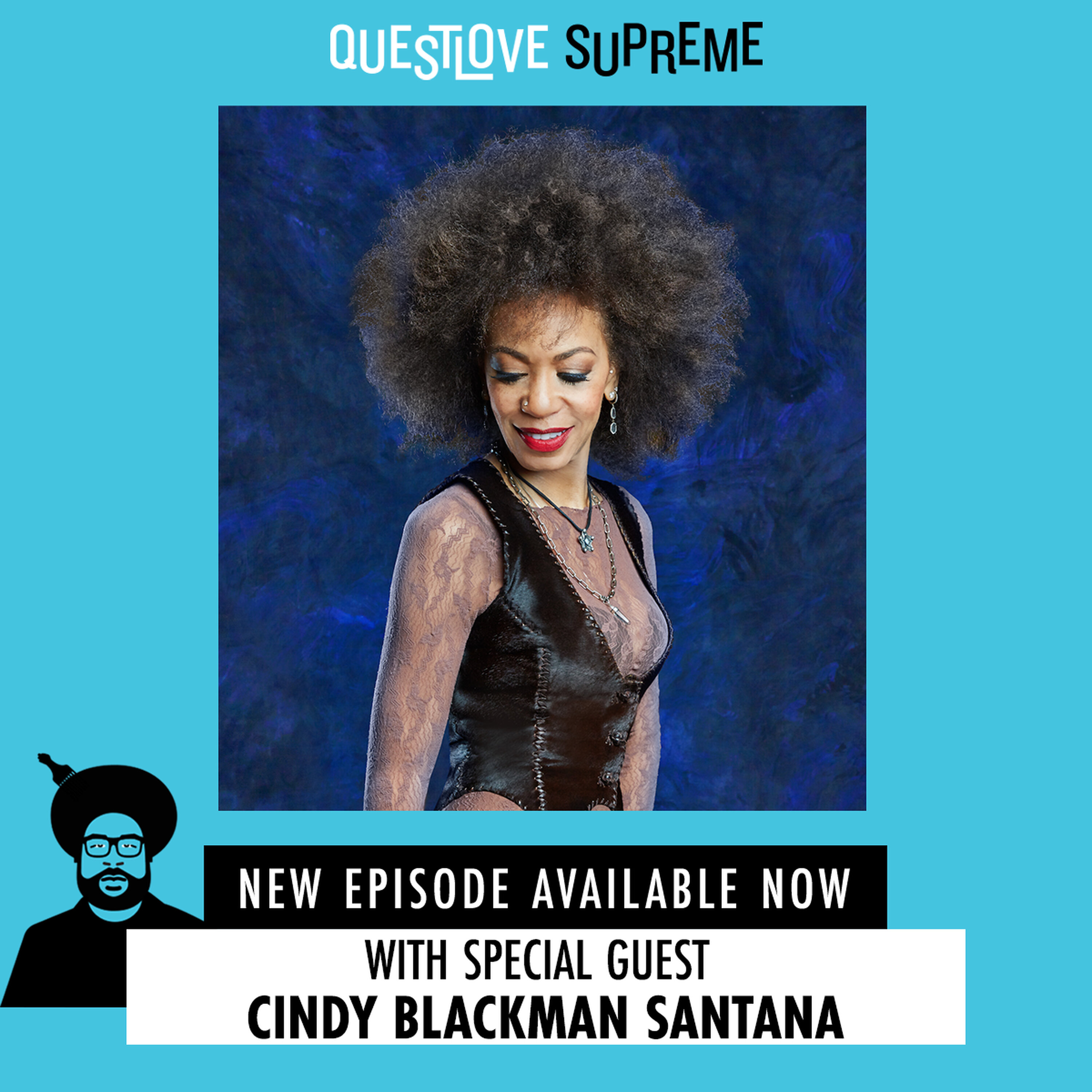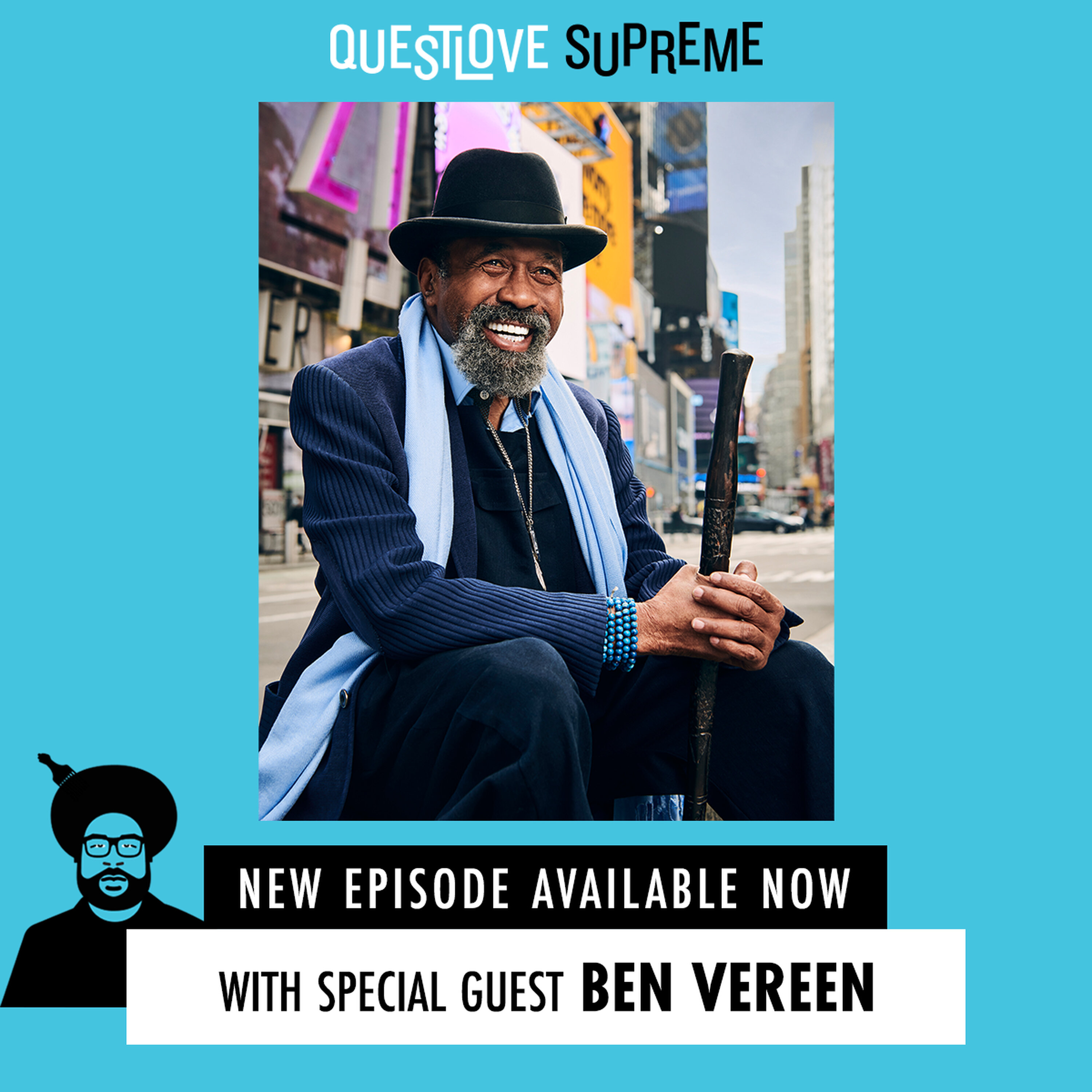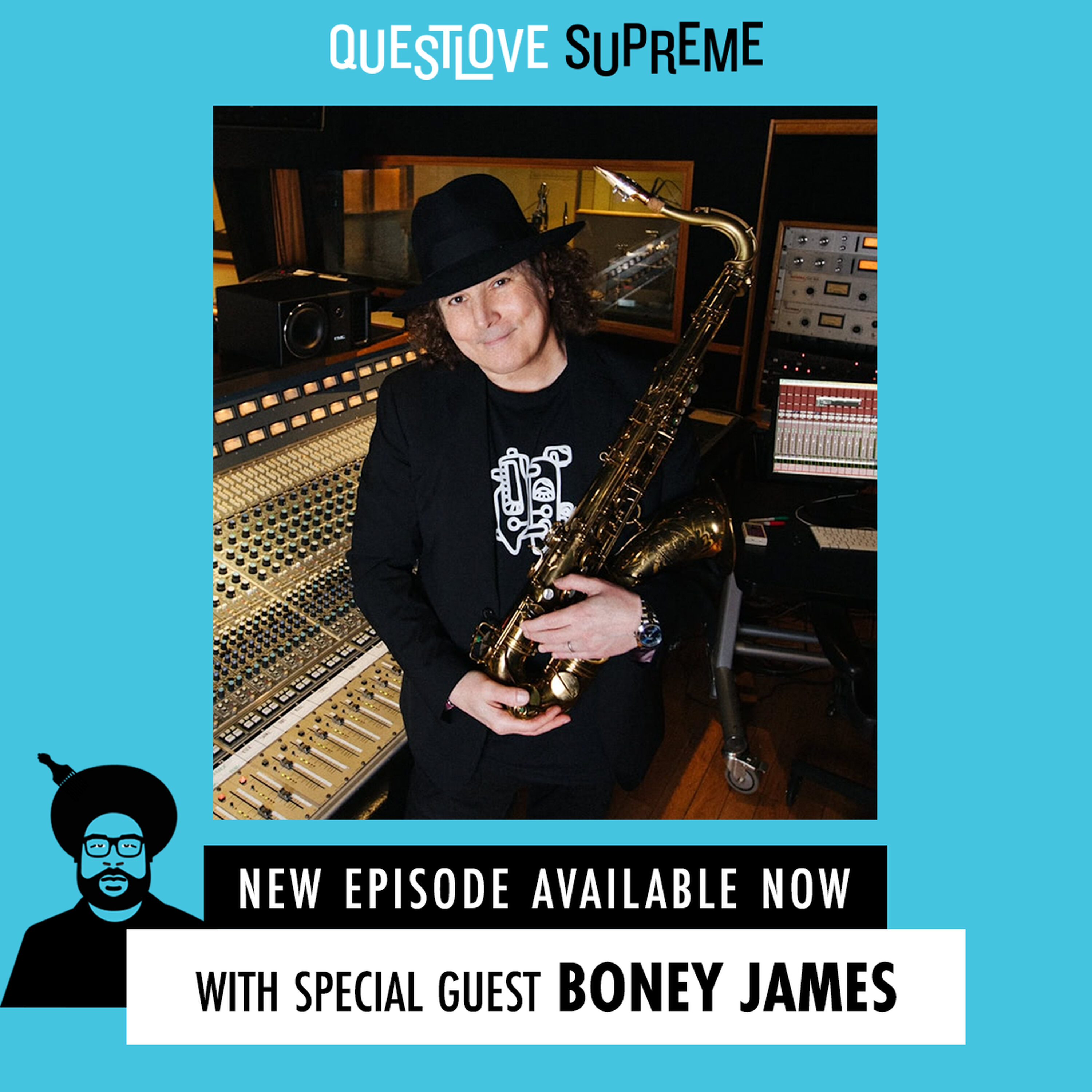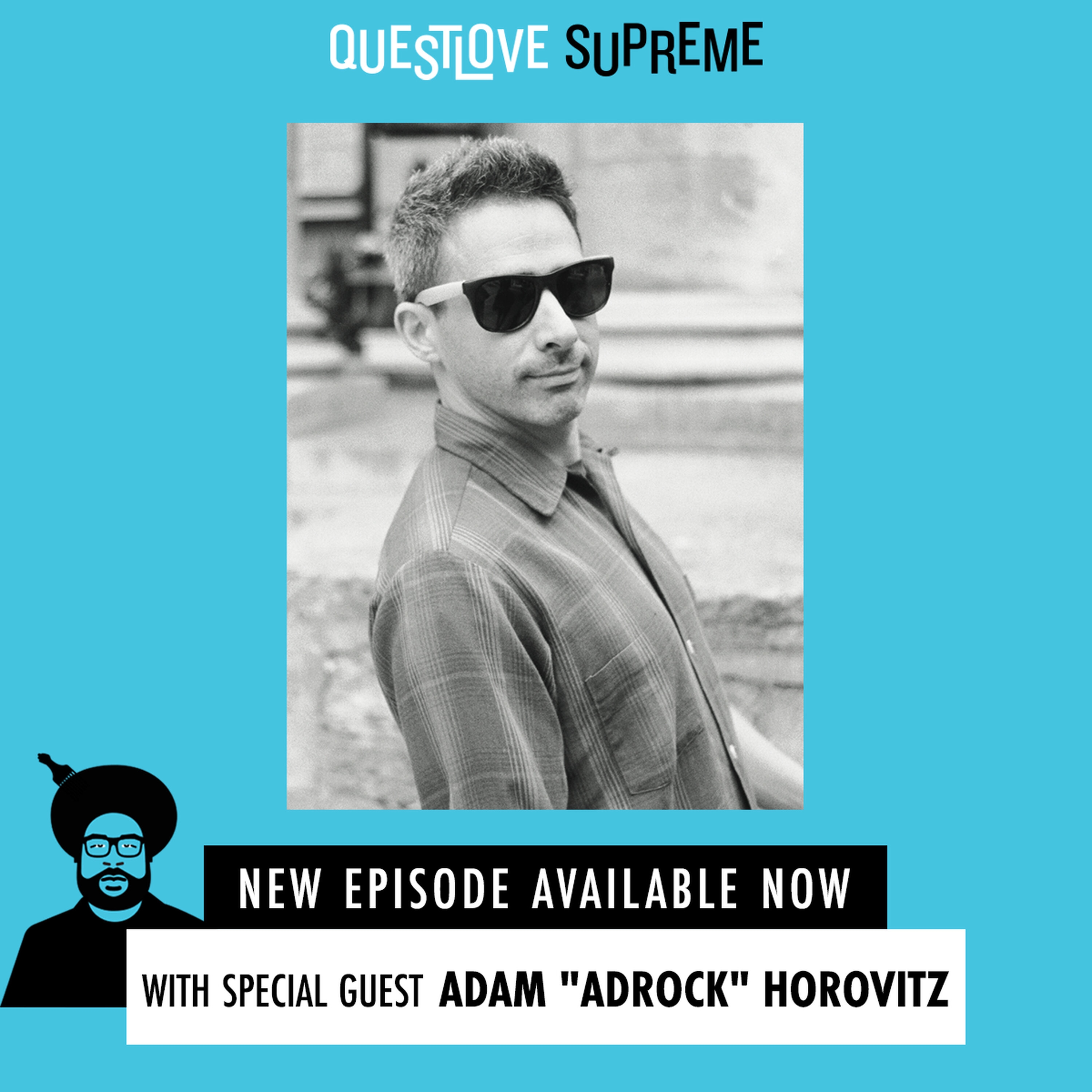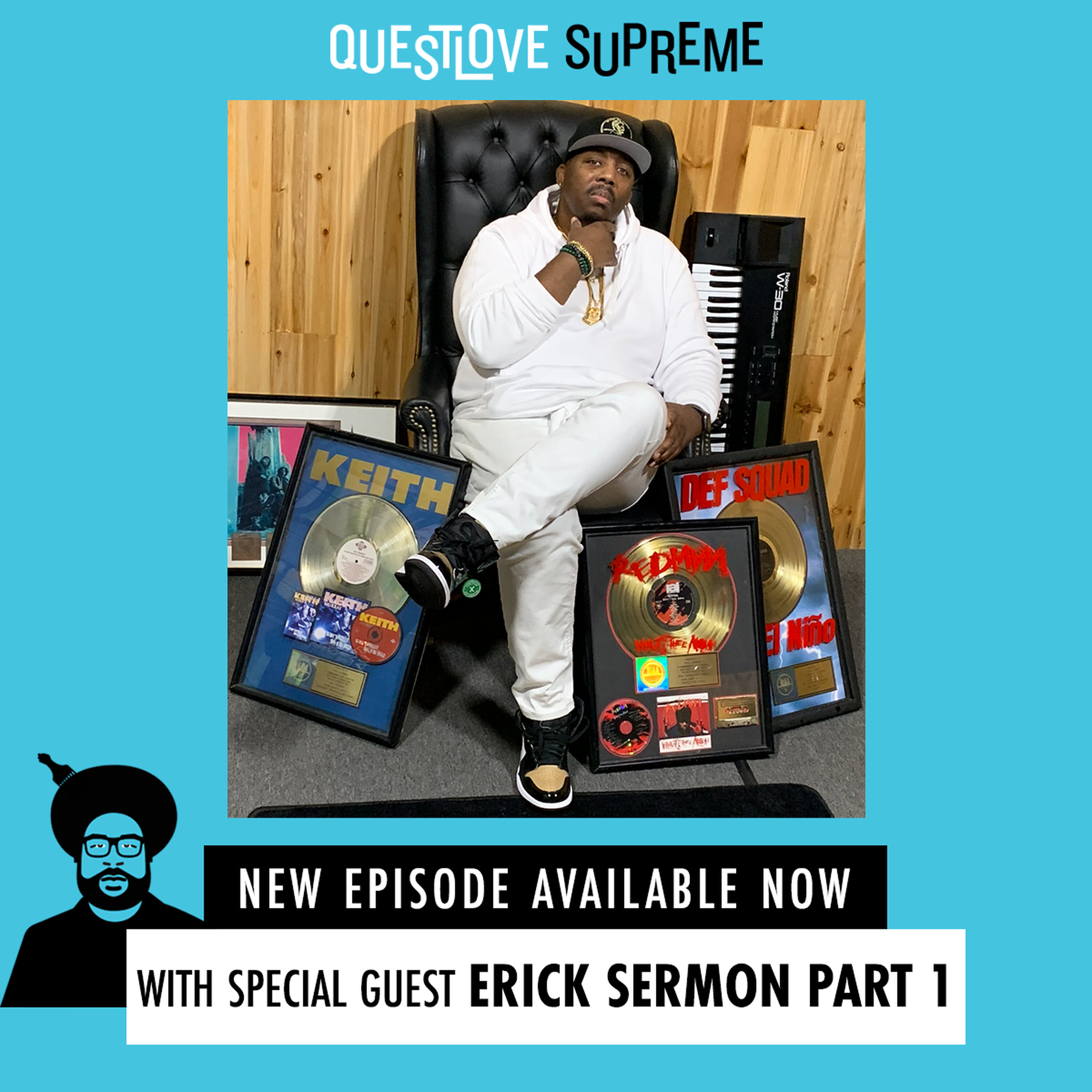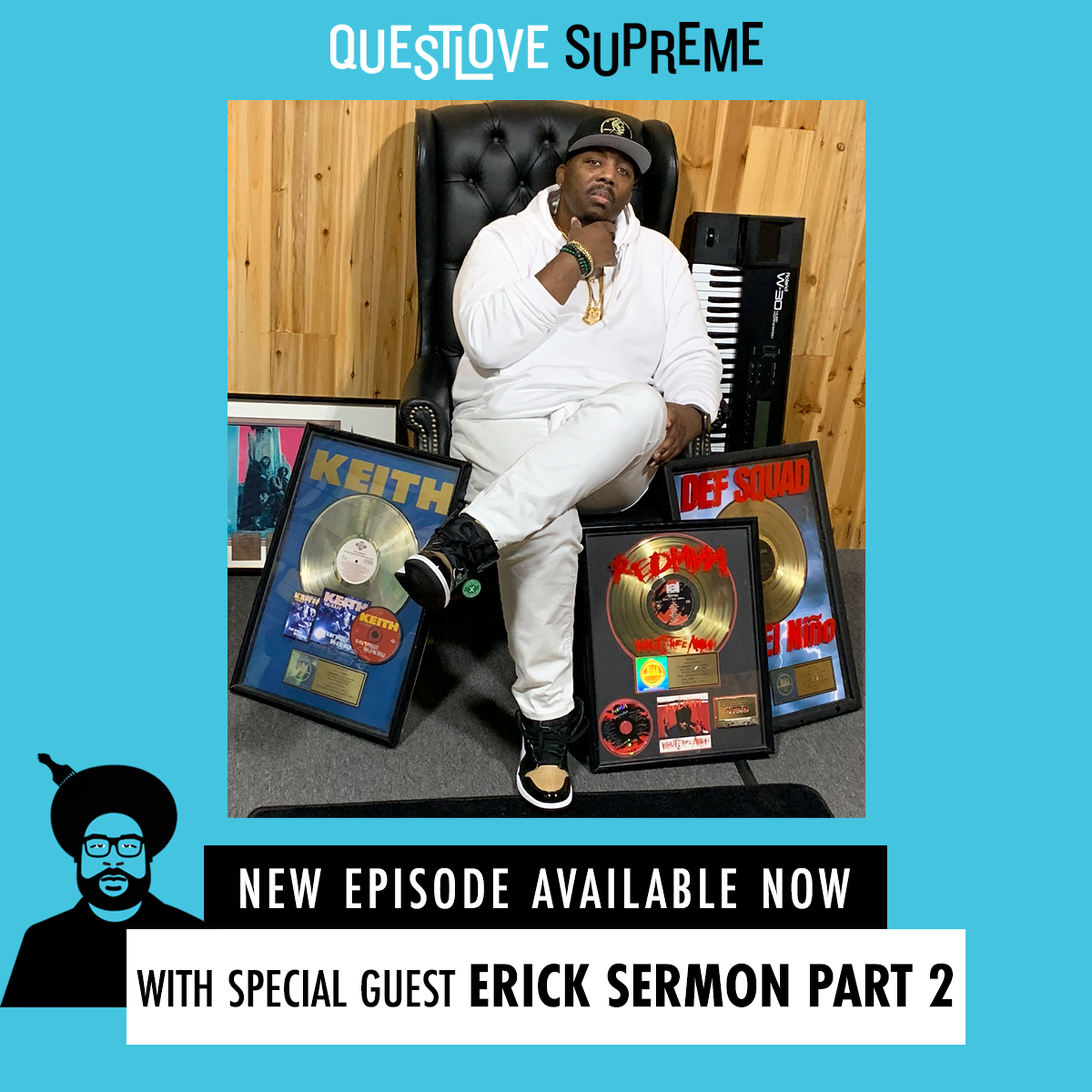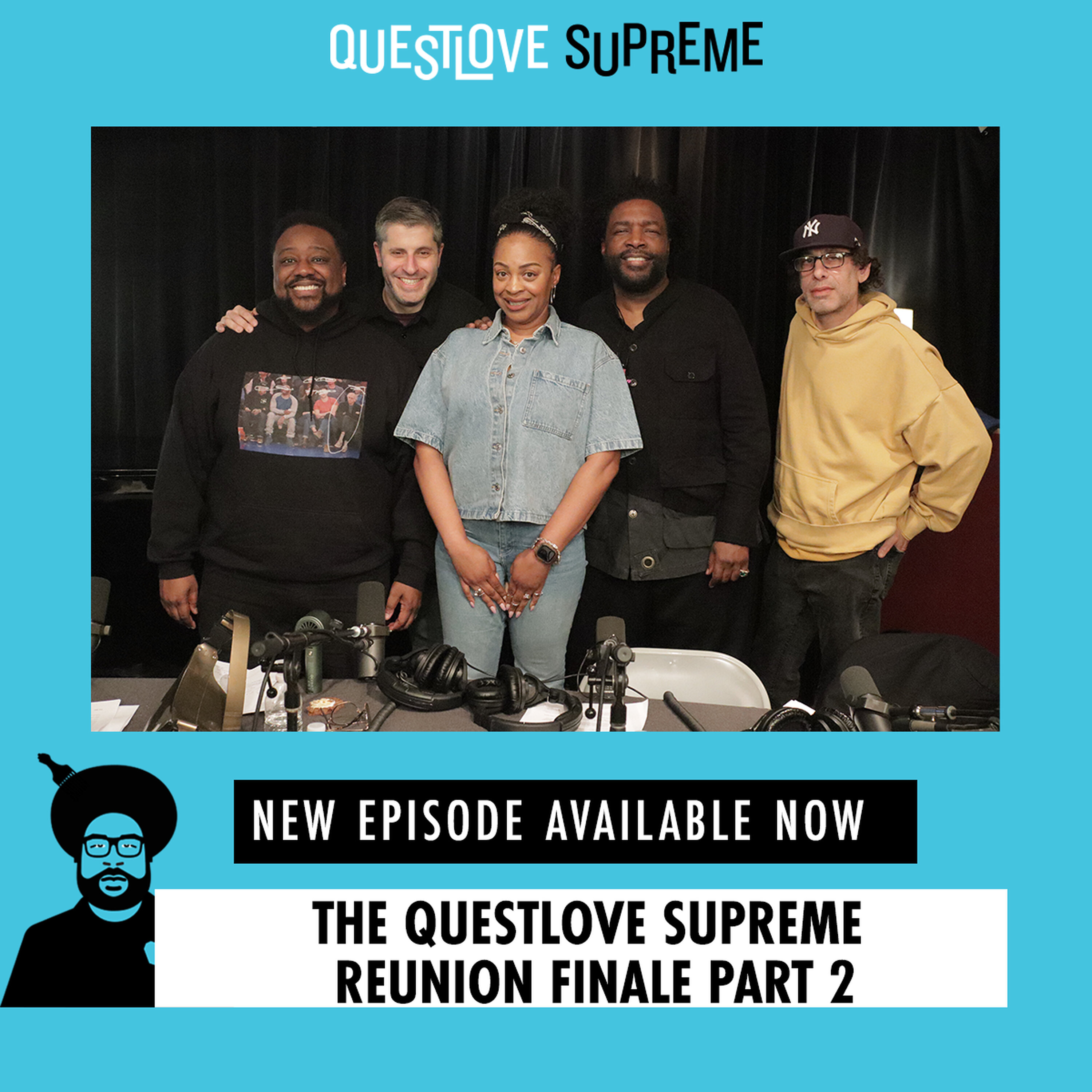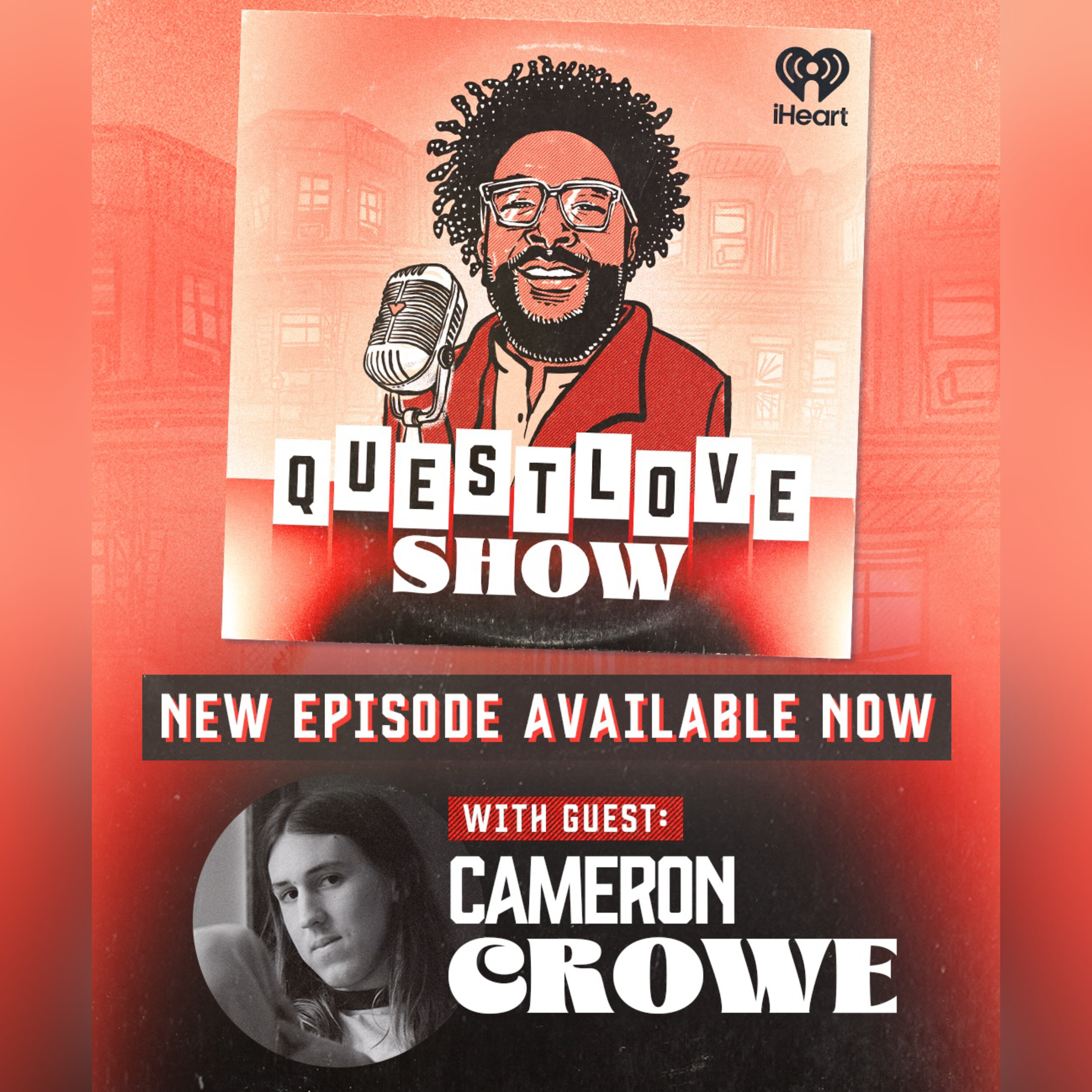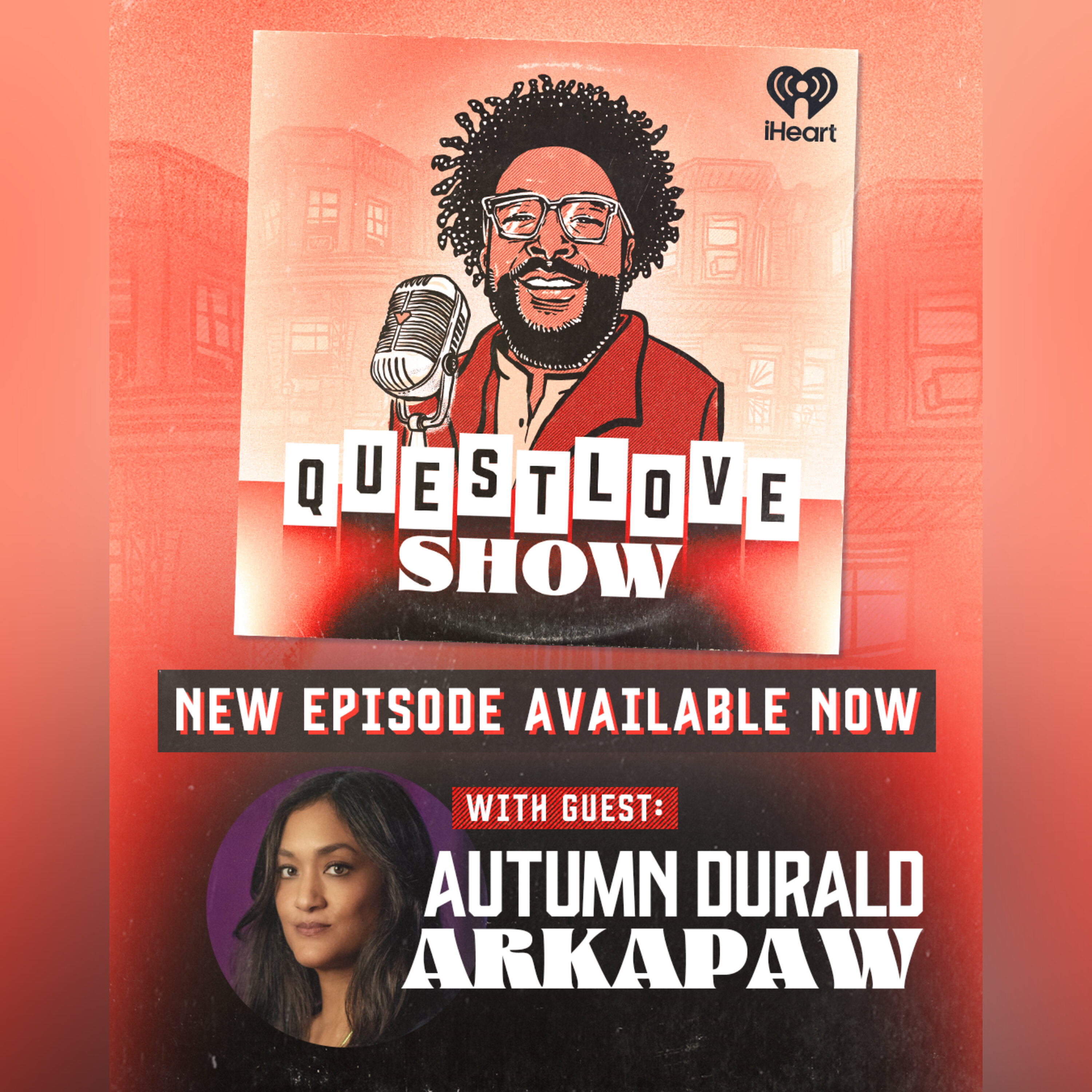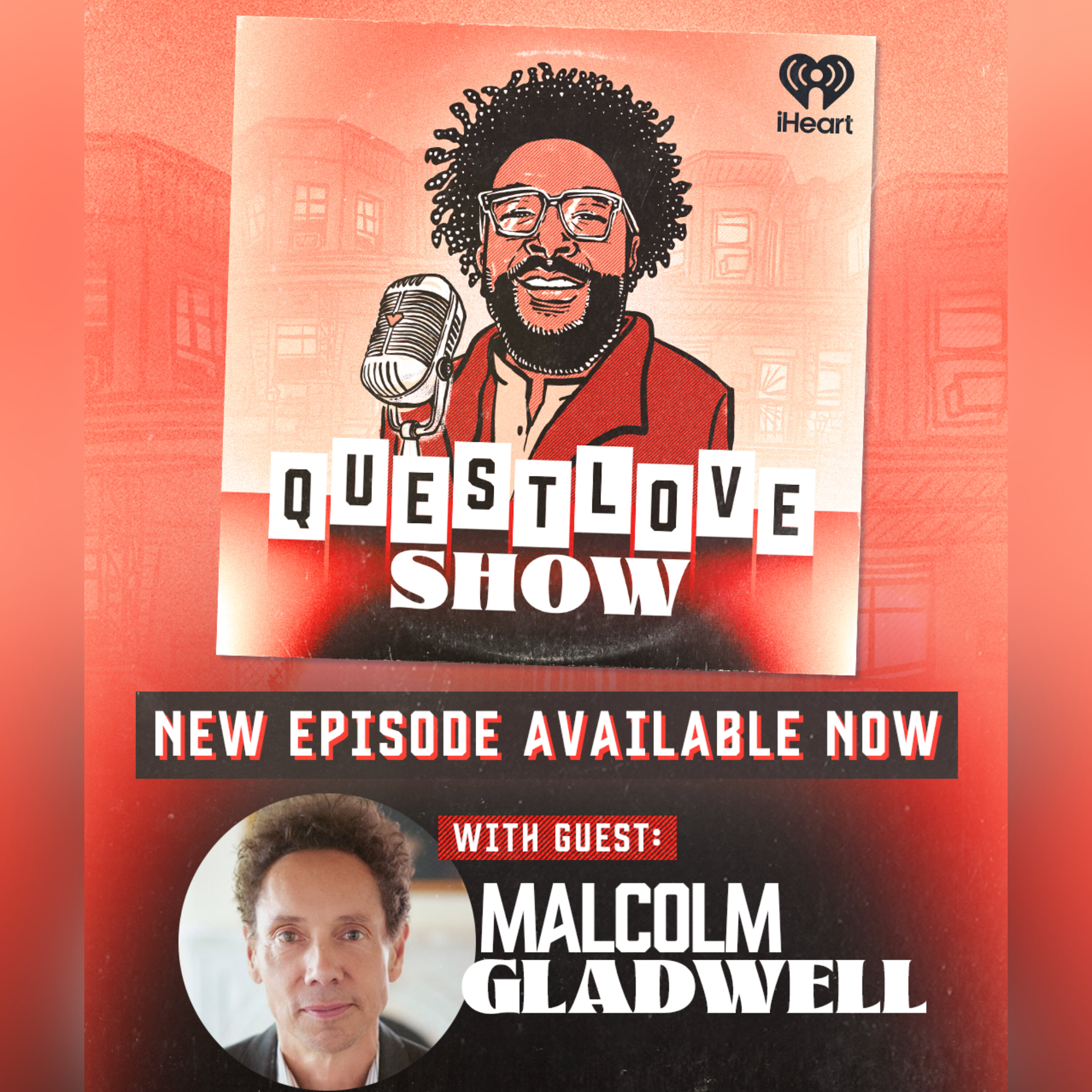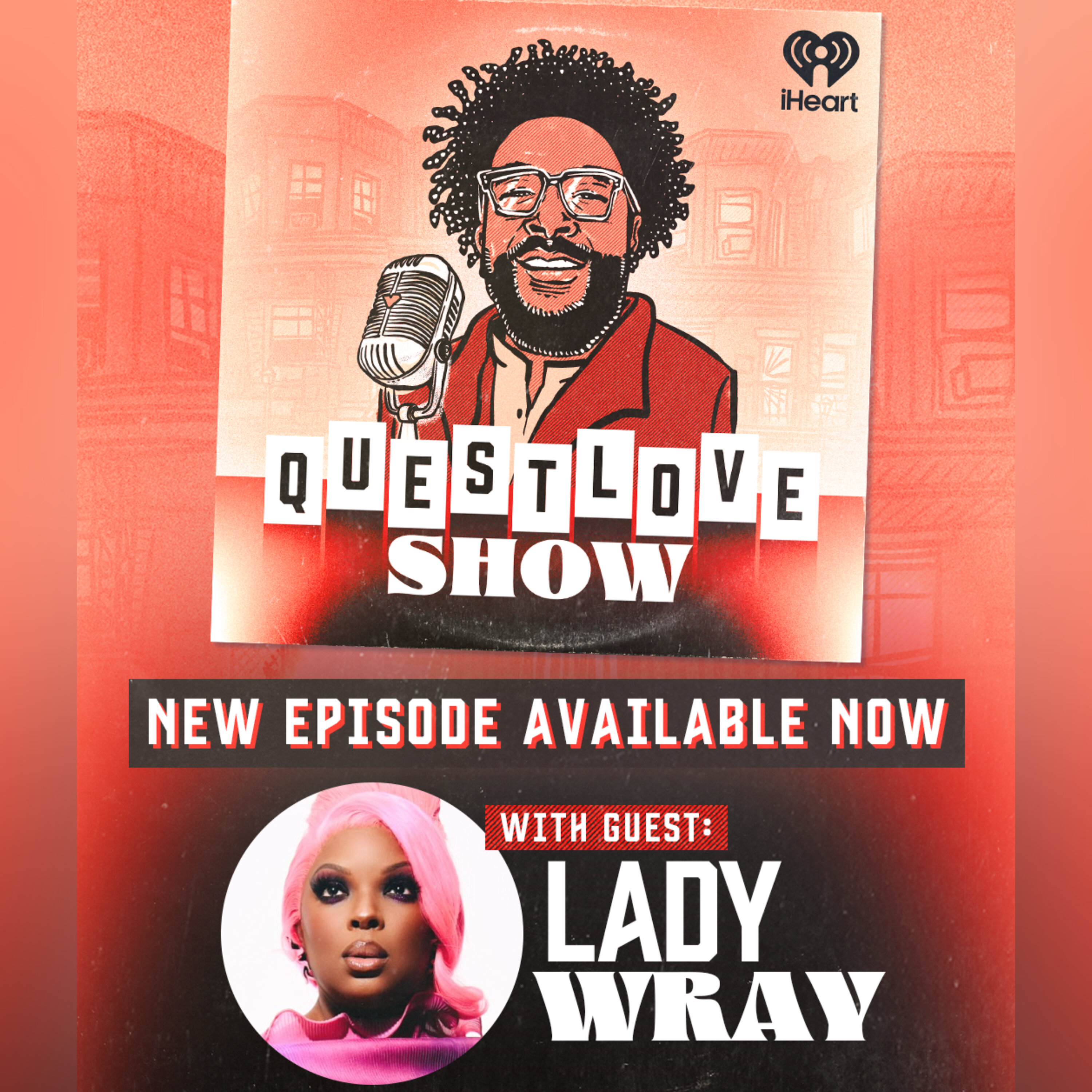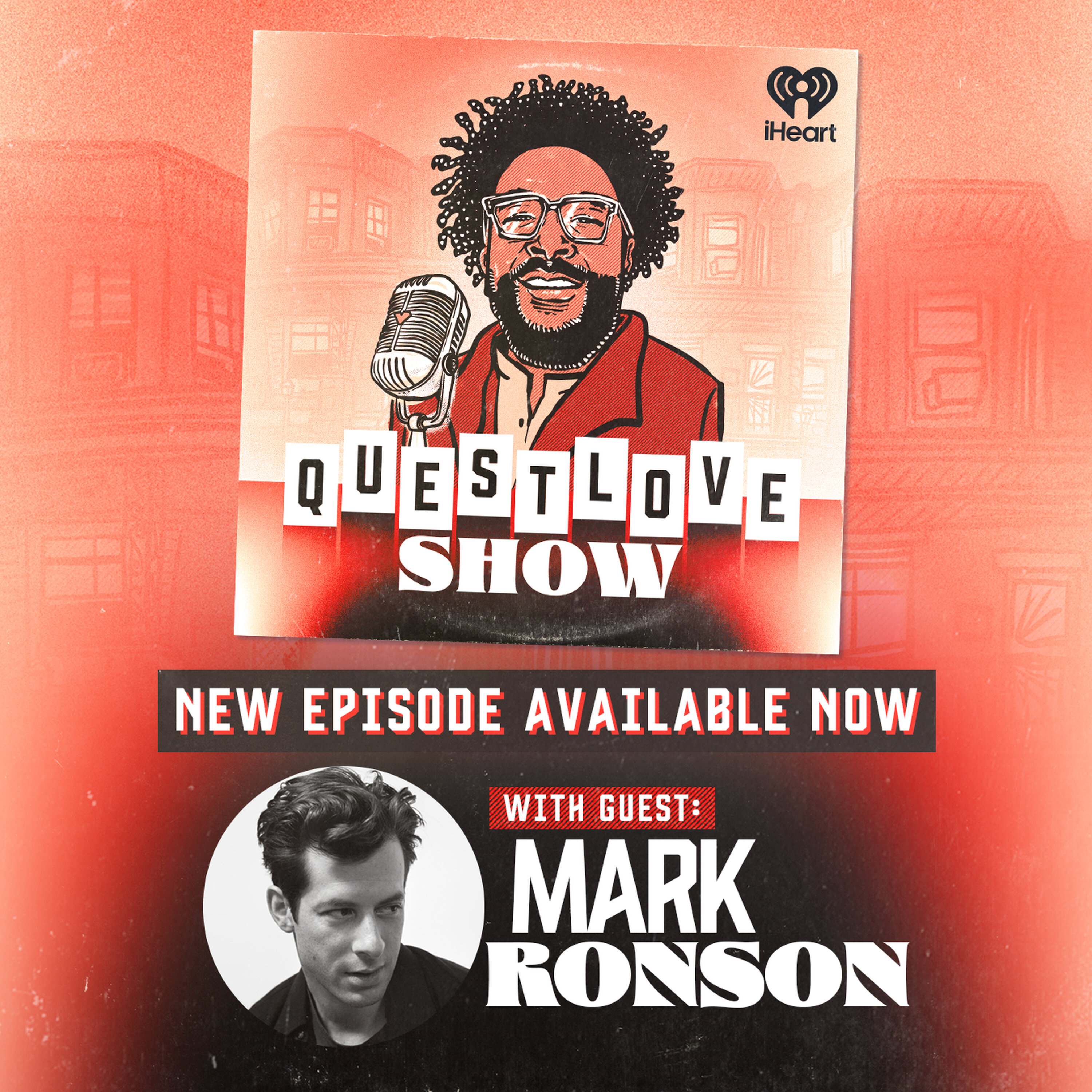RZA Part 1

RZA and Questlove connect for a special one-on-one interview that delves into leadership, creative originality, and some crucial Wu-Tang Clan history. RZA, who just released his Classical album, A Ballet Through Mud, reflects on making Wu's breakthrough single "Protect Ya Neck," his sample pioneering work on Raekwon's Only Built 4 Cuban Linx..., and how age has reinforced his growth, maturity, and purpose. This is the first half of a follow-up discussion between Quest' and The Abbott.
00:00:00
Speaker 1: Quest Love Supreme is a production of iHeartRadio, Ladies and Gentlemen. So last week we did a special one on one with Kathleen Hannah and you guys to check that out, and we're here to do it again. Shout out to the rest of the team Supreme. I'm here with one of my hip hop peers, someone who lit a path for me. He's a producer and author, film director and curator, a world class performer, one of the best coaches in hip hop. He's also releasing a classical music album, A Ballet through Mud, inspired by some of his childhood lyrics, and we're going to talk about that. Plus is illustrious thirty plus years as a band leader, producer, His technique is so much more. I can't believe that we finally finally got the one and only Riza or in Quest Love Supreme. How you doing, sir?
00:00:59
Speaker 2: He's peace, Peace, These bog bong and blessings and all that.
00:01:03
Speaker 1: Yo, you gotta tell me the history of bang bong like I thought Tarik made that. When did bog bong become your what I assume is your greeting and your exit?
00:01:15
Speaker 2: Now, well, bong bong is like you know, growing up with my hood, me and my cousins and uh, you know Staples in Project Ghosts. We have a conversation and the conversation would have a little not that many words in it. It'd be like, yo, son, I'm not pushed through my name Bong quoting like that's bang Bong.
00:01:35
Speaker 3: You know, I name Bong and what happened?
00:01:40
Speaker 1: All right, So I'm gonna I'm gonna make a woo nomount of pier and say that bang Bong is sort of a wu tang version of an honamount of pier, like your your Batman words bang bong, bang b Yeah.
00:01:54
Speaker 3: That means that be thing. You know. It's good there, It is all good.
00:01:58
Speaker 2: Where is it at you feeling?
00:02:00
Speaker 3: Yeah? Bank Bong Bong?
00:02:02
Speaker 1: Me here, I got you, I got you. How you doing today? Bro? How's it going for you? You're you're in La right now as we speak?
00:02:08
Speaker 2: Yeah, I'm in La right now. Q till just broke out. We was brainstorming on some ideas. I know you already shouted them out, real shouted them out, but we can't shout it out enough. Congratulating them for the Rock and Roll Hall of Fame with trial call Quest, It's just such a to me a blessing for hip hop in particular. It's a blessing for them, of course, and first and foremost, but even a blessing for hip hop. Each time one of us get inducted into that world, it just shows the validation of the culture are permeating, you know, beyond its original thought scope at the end of the day. Right in the beginning, it was like, you know, certain things were unfannomable. We can't you couldn't imagine that what's going to happen. My first house is down the street from the Rock and Roll Hall of Fame. My first house was in Cleveland, Ohioland okay, you know, just seeing my pigs getting a chance to enter there, it's a blessing. And yeah, I was just chopping up with him, like before I jumped on with you.
00:03:12
Speaker 1: Okay. It's rather notable that both you and him sort of in the same space. For hip hop and enthusiasts, at least of my age, we always acknowledge that second week of November. For a lot of hip hop hids, if the beginning of the classic hip hop period starts, some say either you know, it starts with criminal minded. A lot of people feel as though the end of the classic period is the double release of Midnight Marauders and thirty six Chambers. I know of his story, especially with his cannon, But for you though, I would like to know that particular day in November of nineteen ninety three went into the thirty six Chambers comes out. Are there any sentimental memories that you have?
00:04:09
Speaker 2: You know, for us, we was actually on a promo tour at the same time, right, so you know, I'll recall all of us being in one of those fifteen passer white fans just on the destination record store signing or radio, you know, just on that promo tour. You know, we had mo Jo with us. He represented the radio for Loud Records in r C A Charm.
00:04:35
Speaker 3: I don't know if you remember. Charm used to be from Tommy Boyce. She came up with a r C A M.
00:04:40
Speaker 2: And I actually remember the kid Lee Royd, the guy who we used to is just like probably heckle him and dealing with the rule was was like, you know, I mean, it was a missing right. This day was like I think our you know, even my my feelings was you know, I used the word elation. I was late right, feeling like, wow, this this album is being shared with the world, you know what I mean. And and you know the confidence which was was at the highest level.
00:05:10
Speaker 3: I gotta say that.
00:05:11
Speaker 2: You know, we didn't enter with our music without the confidence of surety of that it was gonna be some ship, you know what I mean.
00:05:20
Speaker 3: We was like, we kind of like some ship. You know, it's going it's gonna fuck niggas up.
00:05:25
Speaker 2: Excuse my language, but this is like, you know what, you want to take me back to that, and you gotta take me back to the grind.
00:05:30
Speaker 3: So it's like Nigga's gonna be screaming this ship. You'll watch. We're gonna suck him up. They're gonna shake niggas, you know what I mean. We was on it, right, And.
00:05:37
Speaker 2: The interesting thing that happens by the evening, we're going to different record stores. Snoop Dogg comes out that day as well. I don't know if you record that.
00:05:46
Speaker 1: Okay, I do you remember Doggy Style coming out around November.
00:05:50
Speaker 3: And either that day or the week before.
00:05:53
Speaker 2: But but Master Killer gets in the car with that, you know what I mean, and throws that then you know what I mean, and it's like oh, okay, and travers already was already family like, you know, our history was already tied in so.
00:06:06
Speaker 3: So you know, it was just one of those It was. It was a great day for hip hop, to be quite honest, you know what I mean.
00:06:12
Speaker 2: And listening to those albums while we're driving listening to our album, you know what I mean. It was just like it felt like hip hop had a chance again, because yo, how we felt. I don't know if we talk about this a lot, but you just you just point out, you know, criminal minded, you know, talking about you know, Kim in eighty six, Carris went eighty seven. You know, by the time we got to ninety one, it wasn't happening like that no more, right, you know, eighty seven and eighty nine you might have got it, you know, ninety ninety one, it's it went into a different chamber. And we was very dissatisfied with that, you know what I mean, and even ourselves when we were striving to get out there.
00:06:54
Speaker 3: It's like the.
00:06:55
Speaker 2: Industry was trying to chase that shame. And when we got a chance just to say, oh, we're doing hip hop, you can't And I didn't hope I hope, not hope, I hope, I hope not saying this egotistically quest but you can't not deny that even if Wu Tang clan eventually ends up in the Rock and Roll Hall of Fame, right, but you can't deny that first album. The only category for it at that time was hip hop, you know what I mean? Like you could take some of the albums and no disrespect, Like you could take mc hammer and you could say that maybe it's funk, maybe it's whatever it. You know, that's because he's rapping over it. Don't make it hip hop?
00:07:30
Speaker 1: You see what I mean? Now with the rival of Wu Tang from my perspective, especially the genius relentless way that you guys kind of served us between ninety three and ninety five with the five solo records, the group album, like it felt like okay, hip hop is is steady, like this is this is our lane? And little did we know, like after nineteen ninety seven, just a seed change happened in which it was kind of like a tsunami with where hip hop, at least the hip hop culture that you and I are used to, And a lot of that had to do with sample clearances and you know, sort of people seeing it as a business, whereas you know, we could get away with whatever because not many people were looking down our throats as creators. But then all of a sudden, it's like you got to clear this snare and this hook and all that stuff. But for you, in hindsight, did you realize that the Wu Tank's entry was going to sort of be the end of something that didn't seem like it was ever going to end as far as that particular spirit of hip hop is concerned.
00:08:41
Speaker 2: I don't know if I saw that as the end, because I think it waved right, it went, It came in different forms. Even now some people say, well Bizelda is a version of that, right, So you know, at one point it was in odd future was another version of that. Right. So I don't.
00:09:00
Speaker 3: Think it ended.
00:09:01
Speaker 1: But what is there?
00:09:03
Speaker 3: Right?
00:09:04
Speaker 1: The spirit is there, but kind of the.
00:09:07
Speaker 2: The same, but from my perspective, right, so being in it is different. Right, So from my perspective, it's almost like it was like we were counted. Okay, hip hop was counted by business, countered by legalities and interpolation laws, counted even by I can I say this hot ninety seven, like some master reflects sat down with me and he apologized to me, right, and he basically was like yo, at the end of the day, you know, there was an agenda to stop it, like to like to to be like, yo, cut that off, turn this up, you know what I mean? And you know, you know, a.
00:09:52
Speaker 3: White Castle burger is a white Castle burger, right, you know what I mean.
00:09:56
Speaker 2: But they you know, we lined up for that, right, not knowing the law some effect of.
00:10:00
Speaker 3: It versus something home cook.
00:10:03
Speaker 2: And so I'm naive, to be quite frank with your brother, I'm pretty naive about the world in a way because, especially at that time of my life, I'm focused on the world. I'm trying to see right, right, Like I'm a type of dude that well.
00:10:19
Speaker 1: That's called living in the present, which is what you should be doing.
00:10:22
Speaker 2: Right Exactly until I saw five Deli Venoms back in Blockbuster, I wasn't happy, you know what I mean, because it's like I gotta go to the bootlegs store for that, you know what I mean. I wanted whatever we was bringing to the culture to be a valuable you know what I mean. I wanted to see a Spoting Man movie, an eye and Man Movie like, so so it was so I'm living in that narrow bubble of striving to express to the world the childhood that I thought was healthier.
00:10:52
Speaker 3: And better creatively.
00:10:53
Speaker 2: Right, So then I don't pay attention that I'm being countered. And even though I was being counted, you know, and when I was luned, I was being counted by my peers and even by you know, by the system itself.
00:11:07
Speaker 3: You know. I learned that years later.
00:11:09
Speaker 2: But fortunately, fortunately for war, there's still a level of purity in us as as people, you know, like ghost face is just always just these ghost face It's like that's it. And so fortunately for that, whatever happened out in the world or whatever was changing, we didn't go so far, you know, didn't go too far to chase you know what I mean, they a't gonna see that, and you know, look this way and look this way and checked out, checked out, but you didn't go too far to chase it. And I so, so I guess you know the answer your question is like, in hindsight, I didn't see the ending because it didn't end in me. But in hindsight and learning what I know now, it's like man, motherfuckers was actually trying to kick me out the room.
00:11:54
Speaker 3: You know what I mean?
00:11:55
Speaker 1: I feel you so right now, I'm working on the Earth, Wind and Fire documentary, and a lot of what I know about your modus operandi is sort of parallel with where Maurice White was informing Earth would in fire, him using astrology, him having an affinity for the number nine, literally, like him writing manifesting a manifesto of what he wants the group to do, what he wants the group to achieve, things that I've known you've done, as far as like planning out what I'm going to organize, who's going to be in the circle, and how we're going to do it. Like a lot of cats don't know that that's metaphysics or manifesting, but that's exactly how Maurice White structured Earth would in Fire. Like. I don't know if I'm necessarily a coach in the way that you were a coach, But how exhausting is it, especially in those first five years, How exhausting is it in being the head coach or the de facto leader of this empire? First of all, why nine members for the Wu Tang Clint?
00:13:24
Speaker 3: Like?
00:13:25
Speaker 1: Was that on purpose or was that just like who was there? No, No, first it was eight right, Okay, I understand Master Killer's situation, so I still count him in terms of.
00:13:36
Speaker 2: Oh he became nine by the time. You know, first it was eight, right, like the eight points on the star, right.
00:13:41
Speaker 1: Okay, that's why.
00:13:42
Speaker 2: That's why I look, I saund the seven in the center of the eight point star.
00:13:46
Speaker 1: Right.
00:13:46
Speaker 2: So a lot of things that was aspiring me was mathematics, knowledge of self, knowing that a determined idea is his power was a nuclear bomb. In fact, it took a determent idea to me a nuclear ball. So having that impulse over me, and knowing that the MC's that was in my community that I was friends with buddies where had demo tapes with, knowing that the industry actually needed it in my opinion, like the industry needed a joke of the real people that's living it, right, and not just some of the people and and helping out saying that in an offensive way, but not just some of the people who was like already in or who.
00:14:31
Speaker 3: Went through their experience.
00:14:32
Speaker 2: It's like crazy thing about Wu Tang that's kind of crazier than it's it's seven felons in ute mm hmm. So that's that's the people that's written off, you know what I mean, it's probably man, it might be eight high school dropouts, you know.
00:14:50
Speaker 3: What I'm saying.
00:14:50
Speaker 2: So this is the people that that ain't gonna get a chance in all reality. And yet this is the people that's that's loving hip hop, living hip hop right, their lyrics and misspelling the words in some phases, you know what I mean.
00:15:05
Speaker 3: And to my ear and to my knowledge of the of.
00:15:07
Speaker 2: The industry itself, I was like, Nah, this band of MC's right can nationally come through and rock the world. And I was and I'll have the validation of course of the chisa in O D B. Right, I have thedation as well, meaning they agreed and when the rest of the klan agreed to the idea, right, and we all live by mathematics. Who says, once you make an agreement, you got to live up to that. You know what I mean, You got to live through your world. Your world is your bond. Right, So once we agree that this, you know that this idea, this course of action is the course of action to take to go ahead, and you know we're and we're starving for domination, Like that wasn't a target for us, right, a target to be number one?
00:15:53
Speaker 3: Uh?
00:15:53
Speaker 2: Once once we agree that we're going to do that, and then somebody at the front of the of the of the sphere at that time, I was like, I'm the tip of the spear.
00:16:01
Speaker 3: I see the target.
00:16:02
Speaker 2: I just need y'all to fit the force behind me, you know what I mean with that aspiration and inspiration. Yes that I saw that clearly, even if nobody else saw it, right, because sometimes you may ask another roop member that you said, now, he didn't see it, or he didn't see it.
00:16:17
Speaker 3: Here, once y'all saw it, or once y'all believe.
00:16:20
Speaker 1: Did they believe you? Like were they all in the room at the same time, or was it just like sort of some Hollywood Yeah, let's do lunch it Like okay, we'll make a record like.
00:16:29
Speaker 3: We gather it, we build you know.
00:16:32
Speaker 2: I verbalized it, you know, and look one of the simple quotes of it that I used for always.
00:16:38
Speaker 3: I'm a god of analogies, So my analogy to.
00:16:40
Speaker 2: Them was like, Yo, the only way we're going to get there is if you guys let me drive the bus with no questions. And you always be the passengers. And I promised I'll get us there, but I don't need nobody like it has to be a dictatorship in all reality.
00:16:59
Speaker 3: Right.
00:16:59
Speaker 2: That was that was like, that's what I need, right, because I'm gonna with oufas okay, given moment, you know, I mean, anybody can knock anybody out if it's on like that, because there's no chumps here. It's all well bill men, right, So therefore conflict can't exist because the conflict would be self destruction. And so we all got to agree that the abbot is driving the bus and when we get there, I said, I need five years to get there though, And when I get there then it's cool. And we got there, right, But everybody agreed, and even when it got.
00:17:35
Speaker 3: A little weird here or weird.
00:17:37
Speaker 2: There, the agreement always came up.
00:17:40
Speaker 3: And in the.
00:17:41
Speaker 2: Reaffirmation of the agreement. So so at these four other brothers like nah Son, that ain't right because we gave our word, right, you know. And so so that's I mean, that's a long answer to the question. But let me add on one mother one other thing. When you talk about you know how whining fire yourself, you know, Maurice White, yourself myself as this coach position. Yeah, it's taxing. It's not easy.
00:18:09
Speaker 3: You know. I had a lyric about it.
00:18:10
Speaker 2: I said something about I said, rhyming to me is easier than breathing and making beef for me, it's easier than peeing. But fucking with the Wu Tang clan, it's like riding down a thousand foot hill through pine trees and snow on one ski.
00:18:33
Speaker 1: I see that, right, But I know that.
00:18:36
Speaker 3: Right, right, we take that ride. So it was tough, right, and it was tough.
00:18:43
Speaker 2: I will never deny that I gotcha, but it was actually in hindsight now and living as the man I am today, it was also the greatest forging of myself that I ever could have gotten, Like I would not be the father I am, the man that I am if those experiences didn't happen in my life. If those whether there was arguments or challenges or even submissions to ideas, if I didn't experience that, right, it's like my best example, I was doing my film.
00:19:15
Speaker 3: Right, I had one of people.
00:19:17
Speaker 2: Working for me yo, Right, I have a list actors, and I had all these personalities. If I didn't have already dealt with that in my youth with the WOU I wouldn't know how to deal with it then, right, And and the way I handled it, the executives they gave me another job because it was like, Yo, this guy I could handle some shit.
00:19:38
Speaker 1: Do you ever have self doubts because of everything you've done? I mean, I'm talking about scoring directing, Like, have you ever met a challenge in which you were sort of like, I'm not sure?
00:19:51
Speaker 3: I mean, and of course, right, but I would just say that.
00:19:56
Speaker 2: If there's a solution that exists, I strived for the solution.
00:20:00
Speaker 3: You know.
00:20:00
Speaker 2: I remember when we were as young, they say nobody is perfect, right, And when I was about seventeen, eighteen years old, I had already you know, I knew one hundred and twenty lessons already. So one of the twenty lessons, you know what that is? I gotta funny that, right, So, and then brothers move on to what they call plus lessons. And with plus lessons, you know you're you're learning outside of the teachings, right, Other brothers contribution to the teachings. And then I became started writing my own right, and so I wrote one called Striving for Perfection, right. And as I was getting this out of my system, the question was, we always say that somebody is imperfect, But if I accept that I'm imperfect, then I'll never have perfection, so I can So I gotta know, I got to accept that I'm perfect, that there is a solution to perfection, right, And if there is that, then I can be that, you know what I mean. And so by writing that out into a textual form and reading it and passing it to my students and memorizing it and quoting it, it gave me an extra level of confidence of like, you know what, at the end of the day, there's a mathematical solution to it. And when I say mathematical, mathematical could be a physical, spiritual, emotional, social, economic, right, mental. It ain't just arithmetical, you know what I mean, or adding division and subtracting. It's almost like, yo, that might be a quire your spiritual solution, that might be QUI your economic solution, that might be quite your physical solution, you know what I mean? And so knowing that and being confident that those solutions exist, yeah, you know, And I always say I'll pera it is due to a law. I could go into those bags and bring that and utilize it to find that answer. And I'll just say this last piece on it. Artistically though, it's like art duties in the eye of the behold there, right, So first I got to just see it as being beautiful, all right?
00:22:04
Speaker 1: I take that. Do you have a spiritual practice of meditation or like, do you write affirmations down? Do you? Or is it just something in you, a confidence in you that says I'm gonna achieve that.
00:22:19
Speaker 2: Yes, it's it's internal now right at this age, right, And I'm gonna keep going to mathematics on this conegation.
00:22:25
Speaker 3: I don't have good a chance.
00:22:26
Speaker 1: I understand it.
00:22:26
Speaker 2: Good hit me once a man hits forty, right, according to mathematics, for us, for freedom, culture and freedom right, culture's your way of life. Freedom is the freeer dome from ignorance and foolishness that keeps.
00:22:40
Speaker 3: You dumb or numb to the world. Right.
00:22:42
Speaker 2: So if you have culture and freedom right you get your forties, you now should be free from.
00:22:49
Speaker 3: All that other shit that you dealt with physically free.
00:22:53
Speaker 2: You know what I mean, because your body is already now evolved. And so once that happened in my life. I accept that, so I accept every mathematic of my life in my thirties. It says three is for understanding, So you got to understand what you're going through. So first you got to understand knowledge, understand wisdom, right, understand even understand that.
00:23:14
Speaker 3: So therefore your understanding becomes what understood. Right, you got to understand coach.
00:23:18
Speaker 2: All these different degrees, I keep those applied to myself, and therefore I'm able to forecast myself or at least know where I'm at in space and time. And that's a big equation for us. When man, women and child strive to always know where you're at in space and time. Some dudes are still in the nineties or the two thousands, like hold on, so take a look where you're at in the space and time now right now, and then also know where the rest of your cipher is and the rest of the things are around you.
00:23:49
Speaker 3: So, of course our.
00:23:50
Speaker 2: Lesson teach just the fast and to pray. So yeah, faster than prayer is healthy, right, super healthy. But the first lesson is knowledge, it says do knowledge is not just a word of That's why Kim said right in the lyrics, no the ledge, but knowledge becomes an act, a physical act, right, So it ain't just reading. So the mathematics that knowledge is to look, listen, observe, and also respect. Now you may look at something, you may listen to something, but did you observe it and did you respect it? And if you miss any of those components, you're not doing the knowledge because knowledge is the basics foundation and off that foundation of walking into a room and look, first, you observed it, you know.
00:24:38
Speaker 3: What I mean.
00:24:39
Speaker 2: You listen and you respected it.
00:24:42
Speaker 3: You know what I mean.
00:24:43
Speaker 2: That's part of my uh, you know, spiritual affirmation. I guess that answer your question and my my surety of my movements.
00:24:53
Speaker 1: So what does that mean for you now that you're fifty five? Right?
00:24:57
Speaker 2: So now power power, that's truth top of truth. That's why I'm talking like this now. I wouldn't even spoke like this because I would have kept it more personal, right, Like even when I just said to you earlier about y'all, they told me that they shut the door on me, yo, and they apologize to that, and I'm cool with that. I remember I told one of my peers. He was like, Yo, yeah, I sabotaged your whole shit. I said, yeah, you kind of fucked me up for like a week. That's it.
00:25:25
Speaker 1: I believe that you're speaking of the infamous Hot ninety seven summer stage incident. See I was in Europe at that time, so.
00:25:36
Speaker 3: I said, yeah, you guys wasn't in Europe.
00:25:38
Speaker 1: We were there. I mean we were living in Europe for like six months, six to seven months, especially during the summer. So but so basically, an incident happened in Hot ninety seven that rubbed them the wrong way, and they were basically like, we're not playing you guys anymore.
00:25:54
Speaker 3: Yeah.
00:25:54
Speaker 2: Basically, first of all, we were sabotaged, which is cool.
00:25:58
Speaker 3: Happened.
00:25:58
Speaker 2: Hey, that's a fight fight, you know, it's like the five heart Beats, remember before they came out, and guy was like this next Bansard, they're better than the Temptations and.
00:26:09
Speaker 3: Trying to monkey minch it right and yo.
00:26:12
Speaker 2: At the end of the day, you know, a couple of members spoke up on that on the spot, fuck that you'll fuck y'all right, because at the end of the day, one of the members was like, your fuck hot nice on the mic to the crowd.
00:26:24
Speaker 3: Get the crowd. Yeah, it goes like for Hot ninety seven right.
00:26:27
Speaker 2: So they took that personal, but in reality, Bu Tang built Hot ninety seven.
00:26:34
Speaker 1: True.
00:26:35
Speaker 2: Okay, So all of a sudden, you're trying to tell us that we got to do this and change that when when we are, we're the one that brought to your audience, right, the audience is the proof of the pudding is that we got thirty thousand kids in front of us, right, not just from a summer jam. You're on tour, raised against the machine. So we are still that power magnetic to audiences. And yet you're not spending our mute because we didn't hit you with a hook.
00:27:02
Speaker 3: My first song didn't have no hook.
00:27:04
Speaker 2: We was gonna hit you with a hook, and we ready to hit you with a hook protecting that had no hook. We won't try them. This is lyricism. But when they pulled the plug, it's a it's a chain reaction. Though they just first or that's that's our biggest New York was the biggest market, right, and it's all a trend setting market, right and then em It's at the same time had sister stations, so you know we plug pull it here, we pull it here and homeboy over here, we're gonna pull it over here too, right, And that's all good.
00:27:31
Speaker 3: Like I said, the funny thing about it is.
00:27:33
Speaker 2: You know, as it's now explained to me or even apologize or even admitted to I.
00:27:39
Speaker 3: Just like I said, I'm so naive, And like I said, I was why he fucked up for like a week. And it ain't mean nothing to me, you know what I mean?
00:27:46
Speaker 2: Because it never governed what I was doing. It never made me be who I am. That's something that artists sometimes lose faith.
00:27:54
Speaker 1: Well, and you were outsiders anyway, so it's not like that it didn't matter. You existed because you found ways to get in without the mainstream, right right.
00:28:04
Speaker 3: And also the add to that, we also existed because we were us.
00:28:09
Speaker 1: Right.
00:28:09
Speaker 2: It's almost like, look, most people are not going to be able to get the s, the twelve tables. They gotta like you gotta work up.
00:28:18
Speaker 1: To that Gemini.
00:28:20
Speaker 3: Yeah, you might not even know what that is, right right.
00:28:23
Speaker 2: So it's just like, yo, I'm okay, I'm okay being rare. I'm gonna being like you gotta come over here to get that.
00:28:35
Speaker 1: Here's the strange connection between you and nine that Rage tour. We wound up replacing you guys, on the Rage Tour.
00:28:44
Speaker 3: I got it.
00:28:45
Speaker 1: I didn't know that number one. That literally changed our lives. Like that helped me buy a house, which subsequently helped me buy equipment, then help me by you know, helped me make things fall apart, like literally, you know, at that time, we were sort of living hand to mouth, gig the gig. You know, we're cool this week, We're gonna be broke next week, hopefully a gig comes in. Oh, we got a gig. We'll make it. But that was the first time that we were able to sustain monetarily.
00:29:22
Speaker 2: At least consistency.
00:29:24
Speaker 1: That helped. Yeah, that helped in ways you don't even matter. So that was a blessing to me. But in hindsight, I always wonder because you know, you guys are beetles and are rolling stones. So it's like, do you wish that you guys had seen that tour all the way through? Because I would imagine that you guys would have just toured the world, and really it would have been just another level, a higher level of madness for you guys. Yeah, I'm happy how it turned out. Why I'm here right now. Literally that that that changed my life. But from your perspective. Do you wish that you like saw that tour through.
00:30:06
Speaker 2: First of all, I'm glad that as you tell me that, I didn't know that that our era because we made an error that was wrong for us not to complete that tool, you know what I mean. It was a miscalculation by the crew right not to do that. And at the end of the day, that's the outfulness of whoa if you really look at it. The promise was given to me in nineteen ninety two. This is nineteen ninety seven. The time is up, okay, And it was acts in a democratic way. First of all, it was happening like even without like on some of those on some nights of that tour you may see only father of us there, yea. And so it was already starting to be like yo, brothers come in and out when they when they was feeling it, you know what I mean.
00:30:53
Speaker 3: But then it was like, yo, you do we want to I think it was in.
00:30:55
Speaker 2: Chicago it was like we want to stay on the tour or not? And we took a vote and brothers want it off.
00:31:01
Speaker 3: Right.
00:31:02
Speaker 1: Do you think that that whole experience was just jarring for them to get to that level? Do you think that there was just a fear of seeing it through. Was it just too much? Because my first night of that ship, I was scared to death, like all those kids jumping in What the fuck is this?
00:31:18
Speaker 3: Right?
00:31:18
Speaker 2: I think in hindsight, like I've heard some of the brothers bring that up, like maybe there was some type of fearst and somebody. The plan was this toward raids in the summer m m. And then we hit the colleges during the homecoming season. Mm hmm, right, But I think the crew wanted to go home first. They wanted to fill this called the Black Law first. When we dropped the new album, right, they wanted to start there. I was like, no, don't start there, because that's what we left off at, right, So let's start here and then come back around.
00:31:56
Speaker 1: To get the international first and then come and.
00:31:59
Speaker 2: The connection of those type of big concerts, especially when you're young, right, both big concerts.
00:32:06
Speaker 3: If you're not like, how can I explain this?
00:32:10
Speaker 2: Look, some artists need to like have their leg touched by the person in a thousand seedar like they need to they need to smell it. Yeah, And some artists could fucking sit in the middle of the stage empty on a stool with thirty thousand people in front of them and just play their guitar and and and hit you with the janet chaplain, you know what I mean?
00:32:34
Speaker 1: Right?
00:32:34
Speaker 2: And so in us we had that mix of those who would be that way like like, you know, I'm probably more of a I'm probably the rock and roll energy of the crew, you know what I mean, the sense of that methods also the stadium energy of the crew, right, are more like Yo, I'm gonna knock you out street hustler, club or the crew.
00:32:55
Speaker 1: Right.
00:32:56
Speaker 2: So because of that, because of that type of energy at that point in our lives, you know, twenty five years old, twenty six years old, whatever, I think that it may have been some type of I don't know. I don't use the word fear, but definitely uncomfortability. But I will say this, and I said it a hundred times and I'll say it again.
00:33:12
Speaker 1: It was an I'm want to circle your whole career. But I have to know the night that you made protect your neck. One how long did that session take?
00:33:24
Speaker 2: And two?
00:33:24
Speaker 1: How did you determine the sort of format of the song? Because you know you got has eight bars and Old Dirty has twenty four bars and just that hass twenty four but Go says sixteen, like how did you measure and plan that out? Like as far as the order is concerned, and no hook or none of that stuff.
00:33:47
Speaker 3: Well, it was a two day session. Actually.
00:33:49
Speaker 2: That was one of those songs where you got to come back to the studio, right, Okay, back Ghost went home and re voters verse.
00:33:58
Speaker 1: There's another version with a different verse.
00:34:00
Speaker 3: Yeah. Well, at the time he was also Ghost was going through.
00:34:04
Speaker 2: Ghost was also evolved in right, right, Dirty was evolved, was evolved, you know what I mean? Meth and Deck and Ray Ray was amazing right, where Ray didn't have a lot of bars written.
00:34:17
Speaker 3: He had stopped writing for some years. Kind of interesting.
00:34:20
Speaker 2: But I just know Ghost was like, you know because when he's from Stables and they from park Hill.
00:34:26
Speaker 3: So he was like, yo, I gotta I gotta.
00:34:29
Speaker 2: Go back and and come with my stables and shit, right, are coming from Brooklyn, Dirty coming from Brooklyn. So it's like you had that competition, right, But for me, I kind of had a knowledge of their voices as instruments, right, and then also had a knowledge of the potency of the lyric to be quite Frank.
00:34:47
Speaker 3: Yeah, I edited. I edited some shit, yo, got it? You know what I mean?
00:34:51
Speaker 2: To be quite Frank, I was like, boom boom, chop that chop that.
00:34:56
Speaker 3: Now that I got the structure.
00:34:58
Speaker 1: Right, just go kill it.
00:35:01
Speaker 3: You see what I'm saying, got it?
00:35:02
Speaker 2: Because really that had probably twenty four bars right and the beat straight with.
00:35:09
Speaker 1: Your quest, So do you have a version of the song in which is the complete the original?
00:35:13
Speaker 2: The original Fortech your neck really was an inspected deck track that we had recorded prior called It's not your average flow, okay, And so what happened was I had that track and we were like, yo, let's take that track to the studio.
00:35:32
Speaker 3: That beat was killing. Let deck kill that. I'm gonna make that the joint.
00:35:37
Speaker 2: But in the studio I was like, nah nah, And that actually took the sample out of it, and we made the whole track from like from scratch and like and realized, which is interesting, I would say this to you. I took the samples out and I just played the base line and and and then took all the little samples and this was like doing it like that more like versus yeah, doing it manually. And the reason why you won't I'm a version of that because there's only a sixteen track of machine.
00:36:04
Speaker 3: At that time we had, and so therefore we got two guys.
00:36:07
Speaker 2: On the same track. It's just like the hook is on another track. That dirty is gonna come on that same track, and it's no other place to put that at. There's the other place to put my curses or the blocks of the curses.
00:36:20
Speaker 3: I guess like.
00:36:23
Speaker 1: To do it right.
00:36:24
Speaker 2: Yeah, but you know, you know, I'm quite sure you probably had a four track growing up as well.
00:36:29
Speaker 1: I love that dirtiness, so I still collect for eight track machines and cassettes like I vowed, like one day Tarika and I are gonna make the record that we used to make it, like we used to always make albums in our bedroom, you know, before we got a deal and all that stuff. But I still dream of making just the dirtiest thinkiness sonic sounding record, Like that's my dream.
00:36:53
Speaker 2: But let matter a quick question if you don't mine, I know, yeah, you know. First of all, let me just say thank you for inviting me to the podcast. Glad we found time to do it.
00:37:03
Speaker 1: Thank you.
00:37:03
Speaker 3: This should have be my second or third visit.
00:37:05
Speaker 1: First, I was waiting for you man, I was I was patient.
00:37:10
Speaker 2: You guys are credited, and I think I can't find another physical form of it.
00:37:16
Speaker 3: I know that sept the Sonic called.
00:37:18
Speaker 2: Themselves the hip hop band, but you guys are really the first official hip hop band. I know the Fujis may have a little bit of say so in some of that she as well, but you guys are the first official.
00:37:29
Speaker 3: I just want to know.
00:37:30
Speaker 2: My question to you is, like, you know, coming up as a musician, you came up as a drummer.
00:37:35
Speaker 3: Am I correct?
00:37:36
Speaker 1: Yes, started as a drummer. So what was like?
00:37:39
Speaker 2: Yeah, she, that's like, Yo, I'm a drummer. It ain't no sampler. I'm gonna play the drums and We're gonna make a fucking hip hop album.
00:37:45
Speaker 3: What was in your mind?
00:37:47
Speaker 1: What's weird? And I'm not even blowing smoke or whatever, but you and Dylan taught me shit about the drums. Because the thing is is that, you know, especially with black drummers, after the Richard Nixon era, Now before the Richard Nixon era, what you had was you had migrants of families moving to the Midwest, Ohio, Indiana, Chicago, Detroit. They had these great factory jobs that enabled them to buy houses. And in these houses, of course, garage bands are starting in the garage in the den schooling you learned an instrument, and then all that shit got cut in nineteen seventy three, of course, and that's where hip hop culture starts and what happens around like I'll say, like eighty one eighty two, the true place that a black musician could express themselves was the church, you know. And what's weird is that if every musician you know in your neighborhood is that church waiting for their chance to get you know, there'd be eight drummers, five keyboard players, five guitarists, and they're all waiting in the wings, like when's my turn? When's my turn? What starts to happen? Is this this where we are? It's sold now? Like the reason why you can't find a group of black musicians to play like Al Jackson and the Stacks house Band, sort of like because I always wonder, like, yo, don't musicians now know that if you record some shit, like when I record some shit on record, I want to underplay it so that way future iss future Dylas, future whoever, I mean, it could be silent. The creator that they'll be like, that's the part I want to sample. But what happens is church musicianship made it this evil Knieval shit where it's like I gotta show you that I can play my ass off in eight seconds.
00:39:54
Speaker 2: This whole.
00:39:57
Speaker 1: You know what I mean. And it's like like we're used to it now because every musician is a church drummer. But for me, I wanted to sound like like the Stacks box set that really set your legacy. I too wanted to sound like that so like and I'm talking about the filler cuts, fish knowledge, God the way them drums sound so dirty, like that's what I was. I'm like, this is this there's feeling to it, you know what I mean. Until that phase of hip hop came in ninety three, like the Renaissance period of hip hop came, like for me, I thought, damn man, like I got to keep up with these other like dar devils. Okay, the question I always wanted to ask you of all your work, like you know how when you purchased a classic hip hop album, like when shit comes out like classic shit like the day that Longly the Cane came out and Tarika and I are like in my house together, like staring at the speaker, having listening sessions and almost discussions as each song goes by, like especially on the tour of Bus. Nothing paralyzed me more than verbal intercourse. What happened was dirty was in Stockholm, Sweden. He did a show that Friday night or that Saturday and left behind in the dressing room the purple tape. Mind you, we have been living in Europe and like going through the shit like and this before the Internet and all that shit. So we were literally living off of Brand Nubian's Everything Is Everything the main Ingredient by Pete Rock and see how Smooth to cal It was like five cassettes that kept us alive insane during that whole like run and he had a pre copy of Cuban Links, which was like, yo, we could have cried tears of joy, like we got new hip hop. Like can't believe this because minds you were in Europe. It's not like oh yeah, dude. When we got to verbal intercourse, we had to stop the tapement. It's like, yo, are they allowed to just rhyme over people talking like that? Like what the fun for our listeners? Still don't know emotions if you if you say your might as well do it. The beginning loop is literally like Wanda hutchisoning, I don't want to love him, but what if he hurts me? And like literally was rule breaking. We had like a twenty minute discussion like wait a minute, are they allowed to rhyme over people talking? It was almost like we wanted to take y'all to deposition court to see if that was allowed in the world of music. Now we have equipment that can erase vocals and just you know all that shit, But what were you thinking when you loot that ship.
00:43:05
Speaker 2: Well, by the time we got to that point of Cuba Links, I think lyricism, our ego, and our ability to hear from all the other songs we've created and and all the things that we now showed to the world was getting to a higher level.
00:43:23
Speaker 3: What I mean by that is that at one.
00:43:25
Speaker 2: Point, no, you couldn't rhyme while somebody else was talking, because you couldn't even.
00:43:29
Speaker 3: Consciously do it, right, Okay, But now.
00:43:35
Speaker 2: Our nastery of space and cadens is there, right, so because then time it could be I've lined to it first, right, so I know it could be. Yeah, whether I do it to them in the space or whether I just do it. I make sure that it can be rhyme too. That's the reason why I made it right. So by that time we got to there the but what if he I want to love him?
00:44:01
Speaker 3: But what like? It was to me?
00:44:03
Speaker 2: It was like that was part of the beat and all I did and I just added bevy wiz snatch. The problem with that track was because it wasn't there was no problem. No, I'll say the problem as a producer for me, right, it wasn't. Really it was unquantizable. I know, okay, right, So if you look at it, the chick you can't make a beat on.
00:44:26
Speaker 3: A beat machine with it.
00:44:28
Speaker 2: You gotta hit sit there and hit the fucking sit every fucking time on the track.
00:44:32
Speaker 1: So you took the quantizer off.
00:44:34
Speaker 3: Yeah, fuck the quantitizer.
00:44:36
Speaker 1: Here's the thing though, So on the first album I was like, all right, y'all, is there is a goddamn genius or did he just read the first three pages of the manual and decided to wing the west. We had a term called the accidental tourist. Right in making our first album, you know, I would have to play to a click track and sort of fluctuate and then you know, my producer Rich would be like, ah man, do that pass again. That wasn't right, And I was like, nah man, like you know, accidental tourist. You know that's hip hop. He's like, nah man, like we ain't doing no wou shit, like perfect that shit. And you know, for the longest I was looking for an excuse to just break the rules. A good example was Johnny Taylor has a break call you think I'd do it, which has a break at the beginning to do someone offter me beats some breaks and it's so sloppy in the beginning, and like that's what I was trying to inch towards and for you, especially with the sloppiness of everything, Like for me, that just gave me the green light.
00:45:44
Speaker 2: Like because the crazy thing is that for me, I always know the time right because it's my time.
00:45:52
Speaker 3: I remember we was hanging and I had a couple of chicks with me. One knew me since high.
00:45:57
Speaker 2: School, so she knew that I was fourteen years old, right, right, And then some other dudes there and they're trying to show off they knew how to play the piano, all nice and all this ship, right and they got they was doing a little R and B sucker ship.
00:46:11
Speaker 3: I call the sucker shit back then.
00:46:12
Speaker 2: Now I'm cool with it because we make sure all right, then I jump on it and I do my ship right. And yet the chicks felt what I was doing interesting right, But then the one chick was like, he has no tempo, and the chick that knew me said, no, he's always been on his own time. Like and when I say that, so you listen to Brain the Ruckers, bro I'm hitting every snail on Brain the Ruckers.
00:46:35
Speaker 1: Jesus Christ. It's like, I feel like there's gunshots and.
00:46:38
Speaker 2: Yeah, And for me, it's almost like I thought that a sound time could be changed at any moment based on the pulse.
00:46:47
Speaker 3: You feel me so gonna get h that's that right. But if I gonna uh.
00:46:59
Speaker 2: Huh uh, the post is changing, it's changing the time. Okay, so that's possible. I could post what the fuck I want to post and it it'll change the time. That's why I'm bringing the Rutgers. When ghost goes one way, but then in the middle of a sound, it changes. In the middle of the bar Ray goes, it changes, And it doesn't really make this until the hook comes and then when that comes on this now it's in the groove, but then just goes out of the groove by the time he goes a mother it in this slave man boost LOUVII Cruz. I'm fucking up them see shoes and break plumper sample ship with our stump, right, he said, since the day he recorded it. So every time we perform, he don't want to perform, he said, Yo, God, I never could catch that time you put there.
00:47:50
Speaker 1: So the question I have for you is the day that the Grave Diggers album comes out, Philadelphia legendary DJ Cosmi Keev tells me, like, Yo, he predicted that ship was going to go gamebusters, like shout out to my man g from Jersey who were roll heavy. We're promoting you guys like they wanted him to play. Of course, nowhere to run, nowhere to hide and all that stuff. But why didn't you guys release bang your Head as a single, because that Ship, to me was just like that was the single that could have brought you guys over the top.
00:48:28
Speaker 2: You said that because at the time, right, bio has it. Yes, okay, so I think bio Hazard was really bubbling right. In fact, the Grave Niggas was doing days with Bio has Its just to let you know, Okay, I think that in a way it was it was it was the rock energy that scared the label right when you got because you got you got fu Quon, Prince Roquane or the Rustler at the time, you got you got Prince Paul, right, you got hip hop. They called it a supergroup at the time, right, mm hmm. And also I think that the label wanted to chase the wool, right, and so I just think it was a miscalculation because they was they were trying to chase the wolf. So with the sample no Where to Run suicide that we're chasing that where bang your head is almost you know what the fuck that is and it's it's just it's just it was just a ball of energy.
00:49:31
Speaker 3: But I do think that the Grave Diggers were such an.
00:49:38
Speaker 2: Awkward it was an awkward style of hip hop. I mean, it wasn't it was almost like it wasn't a lot of MC's going there like that, you know what I mean. I mean they had they called it horror.
00:49:50
Speaker 1: We felt that that song would have brought that to the legitimate Yes, like we heard about horrorcore. But we felt that that song is gonna be the the flag planning song that really would have set that off. And it never came to fruition. And I always wanted to know why because I used to play that relentlessly. That used to be my first record when I would DJ, and it was able.
00:50:15
Speaker 3: Didn't get with that.
00:50:16
Speaker 2: But you know, it's so crazy though, I would say one thing, it never failed at a live show when we got as when we did that shit, it was fucking I even remember evident from Bile has.
00:50:28
Speaker 3: It like want to come joined and like the energy that that shit used to bring was crazy.
00:50:34
Speaker 1: I have a theory about when people upgrade their like instruments or whatever. What exactly happened as far as the flooding is concerned of your original studio and is that sort of why the chapter ends with I mean, I guess you could say look with the words or not. You know, because the sound of Wu Tang Forever was night and day. It was more polish sound. But what what what exactly happened flooding lines that stopped you from using that particular equipment First of.
00:51:10
Speaker 2: All, tribling links, liquid swords, maybe two or three tracks off of Iron Man because after that, because.
00:51:17
Speaker 3: What happened was, once I did The Child, I didn't want to go back to the.
00:51:23
Speaker 2: Studio no more. I don't like how the Child came out. I'll tell you why why. Even then, No, I didn't like how it came out. I mean I loved it, but I didn't. I mean I liked it, but I didn't love them. Put it that way because I had an engineer that tried to go by the book. So I had to fight to get the sound to it that way. Right, If you listen to I get my thing an action. If you just turned down one fatal bro, the whole beat falls apart. But you gotta know that, and the engineer don't know that. And and remember back in those days, we're not really touching the boards. As we touch the boards, fight to touch the board. You got to send that dude to the store or something, you know what I mean. But by the time we got to I got your back, right, and then you go to Cuba Links and Liquid Swarts. It's my own studio, it's my house. I got every compressor already preset to their voices. I checked the compressor. I knew that I wanted his voice like that, right, Everybody got their own settings, the two inches here, the speakers, I had k arcades, but I had the bigger ones, which which was pretty weird place but made sense back then, right.
00:52:36
Speaker 3: And when the flood came, it wiped it out right, the.
00:52:41
Speaker 2: Two witch machine, the boards still lived, the hardware, all that felt, you.
00:52:48
Speaker 3: Know what I mean.
00:52:49
Speaker 2: And then I had to finish Iron Man inside the studio which is called Mystic Studios. So now I'm in the studio again and I'm dealing with the studio fucking uh chamber. So some of the Iron Man you got some original sound, well some of it you can see like, okay, it's changing. And then by the time you get to wuchank forever. Oh no, we we we we we we build a new studio and we recording in La at the same time. So now we pain ponding. But I would challenge this to you for your ear if you get a chance, and maybe we could talk about it next week. Listen to Kappa Donna South of the Border, okay, right, and let me know, does that remind you of the sound from ninety ninety.
00:53:36
Speaker 3: Five, because to me, that was like my last time like setting.
00:53:41
Speaker 2: My parameters up to that, you know what I mean, Sampling that twenty two point one or seventeen point nine like sand to my sample bit. It was like the last time I did it, and I was like, man, this this and we played it in the office for the staff. Everybody was like, that's you need to make more of those, Like that's the sound, that's that's a unique Wu Tang sound. That that that that the world is used to versus run, which I said, I like run which was run was the was the curse, but run was the curse. Well, Sampler, it wasn't the ASR tent, you know what I mean. So I was kind of moving over to Churst well, like you said, upgrading my ship.
00:54:19
Speaker 1: But yeah, well brother, I appreciate you even let me get this far. God willing, we will continue with our talk with the one and only Riza the average of Wu Tang Clan. Thank you very much, brother brother, thank you for listening to the Quest Love Supreme. Posted by Amir Quest, Loft, Thompson, Lia, Saint Clair Sugar, Steve Mandell, and unpaid Bill Sherman. Executive producers are Mayor, Quest Loved, Thompson, Seanch, Brian Calhoun, Produced by Brittany Benjamin Cousin, Jake Payne, and Liah Saint Clay. Edited by Alex Convoy. Produced by iHeart by Noel brown. WE'ST Love Supreme is a production of iHeartRadio. For more podcasts from iHeartRadio, visit the iHeartRadio app, Apple Podcasts, or wherever you listen to your favorite shows.
















